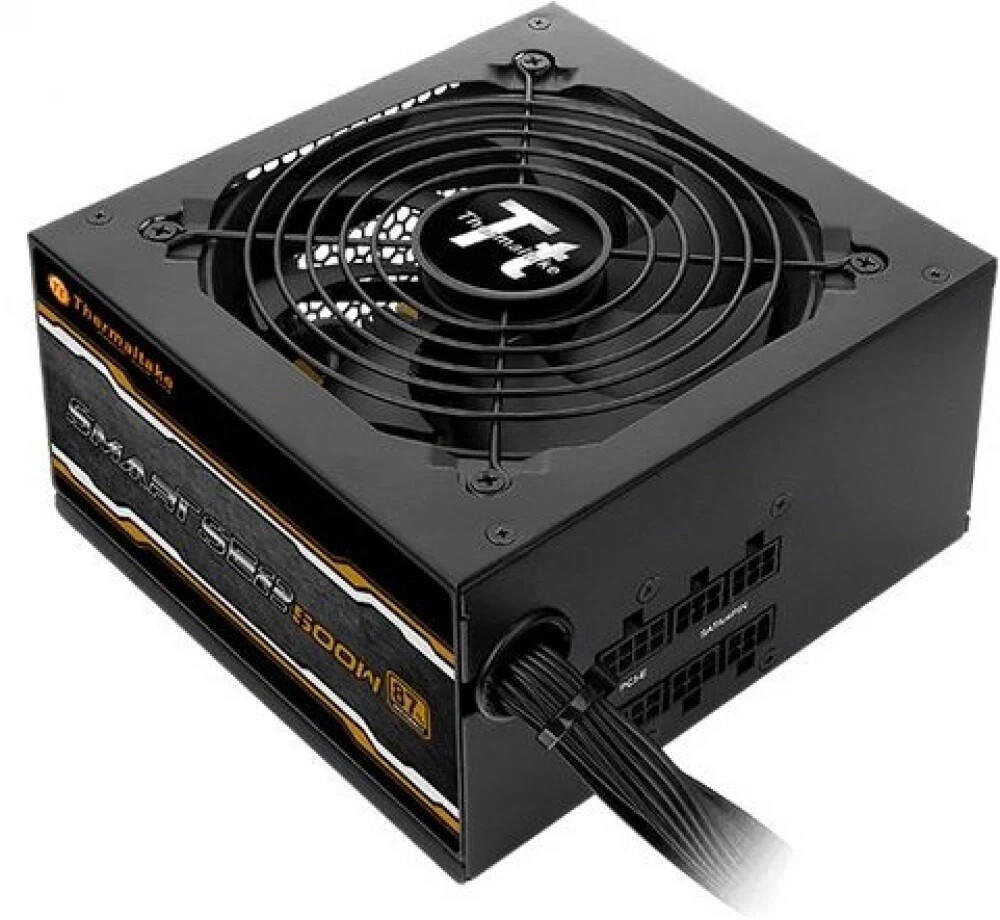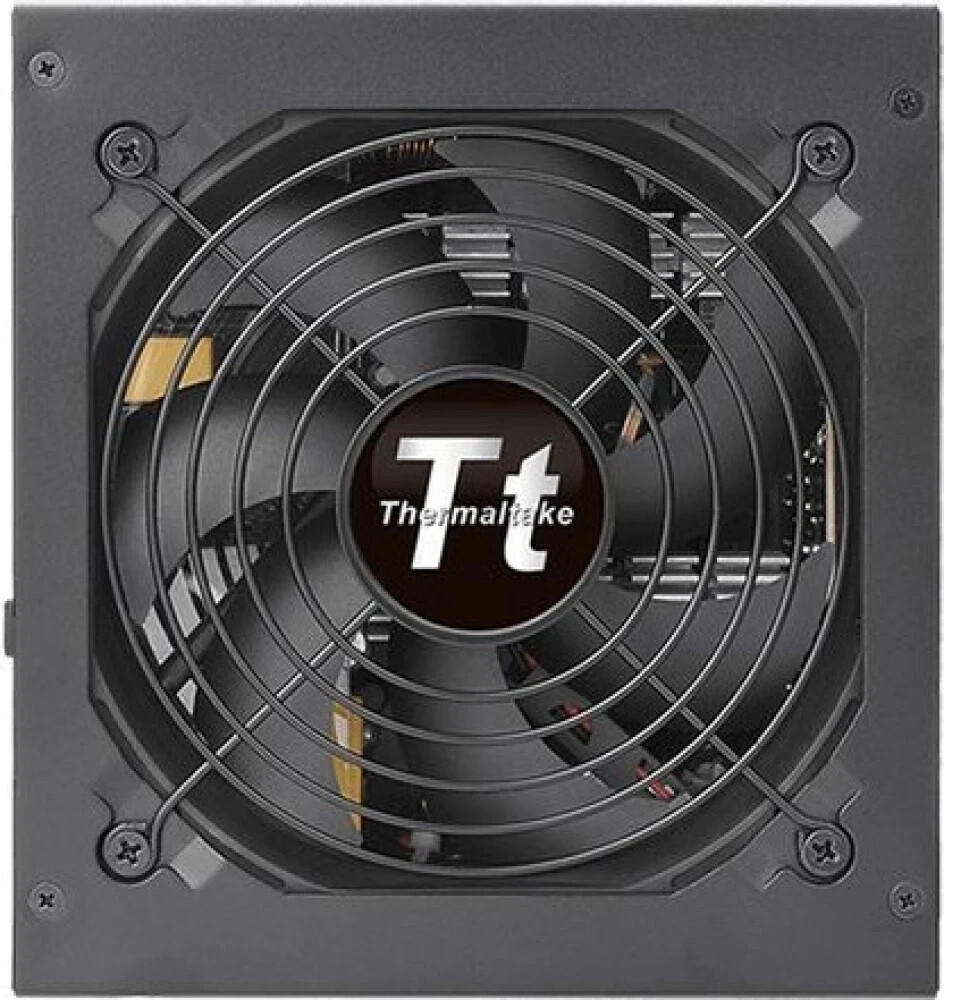PSUs Guide
Output power
Output power is the maximum power that the PSU can deliver to your components, and it is typically measured in wattage (W). It is important to choose a PSU with sufficient output power to ensure stable and reliable operation of your system.
In the segment of standard ATX power supplies, Corsair offers a wide range of options to suit different power requirements. For mid-range systems, the Corsair CX550M 550W PSU is an excellent choice. It boasts an output power of 550W, providing ample capacity for a variety of components while maintaining high efficiency. For more demanding systems with higher power requirements, the Seasonic Focus PX-850 850W PSU is worth considering. With an output power of 850W, it can easily handle high-performance graphics cards, multiple storage drives, and other power-hungry components. Additionally, this power supply comes with modular cabling, allowing for a cleaner and neater cable management solution.
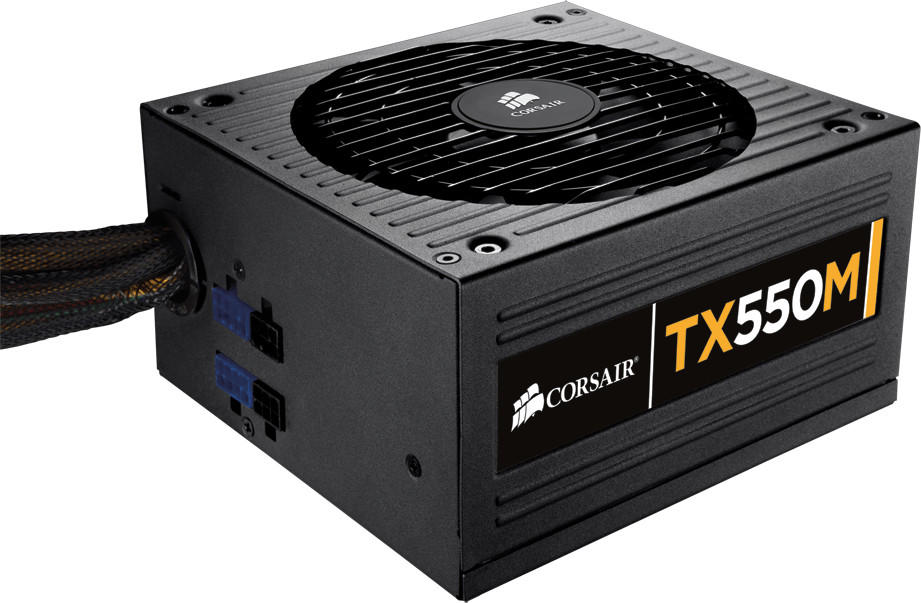
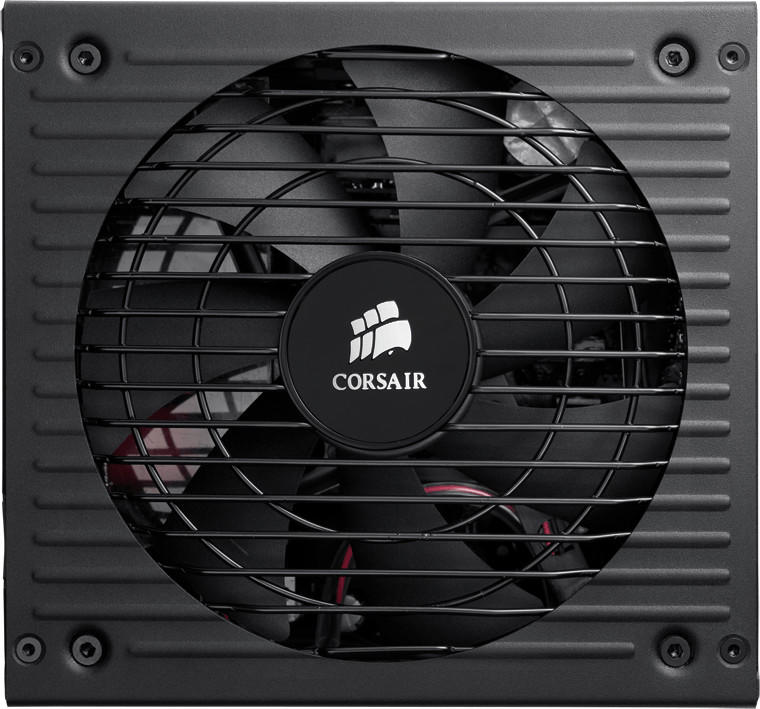
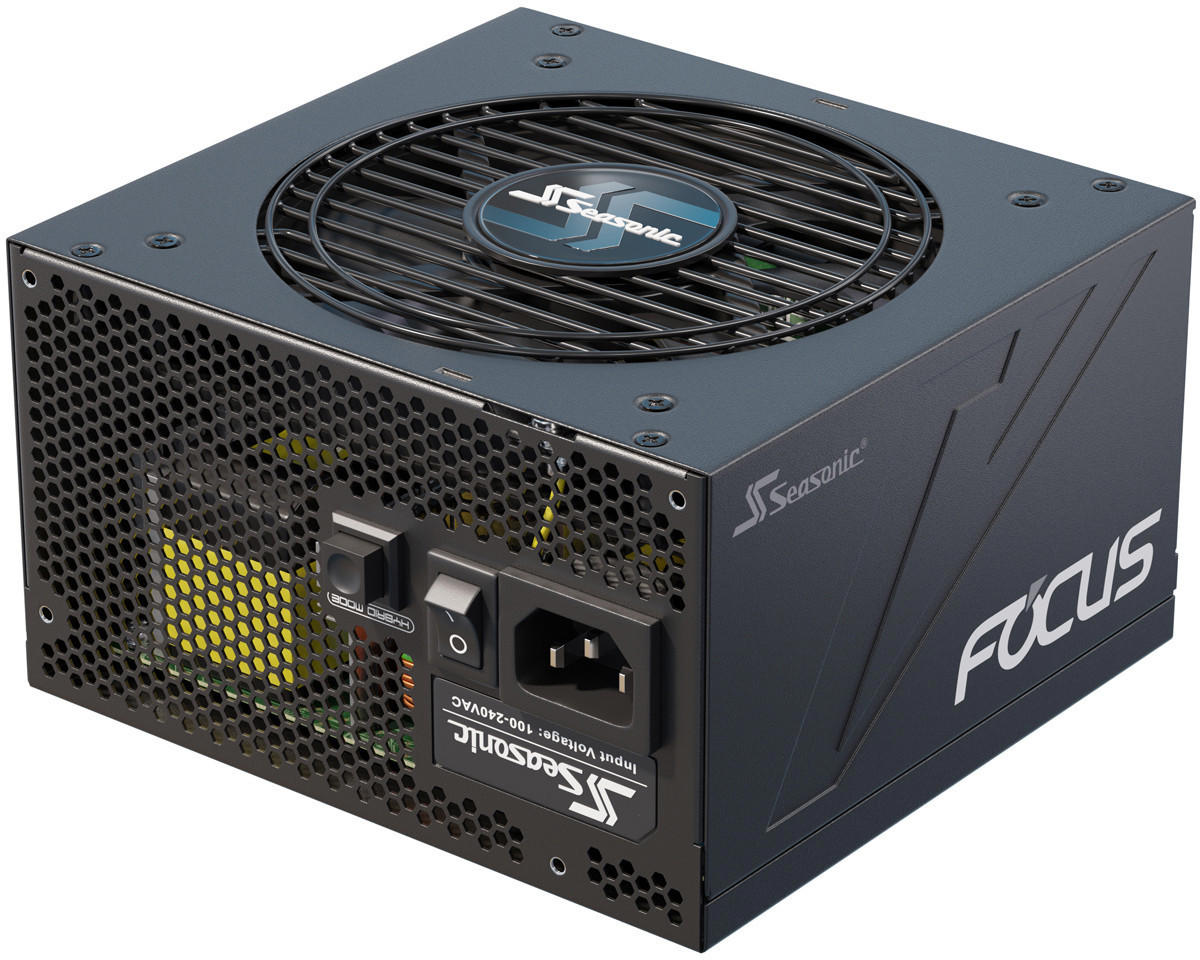
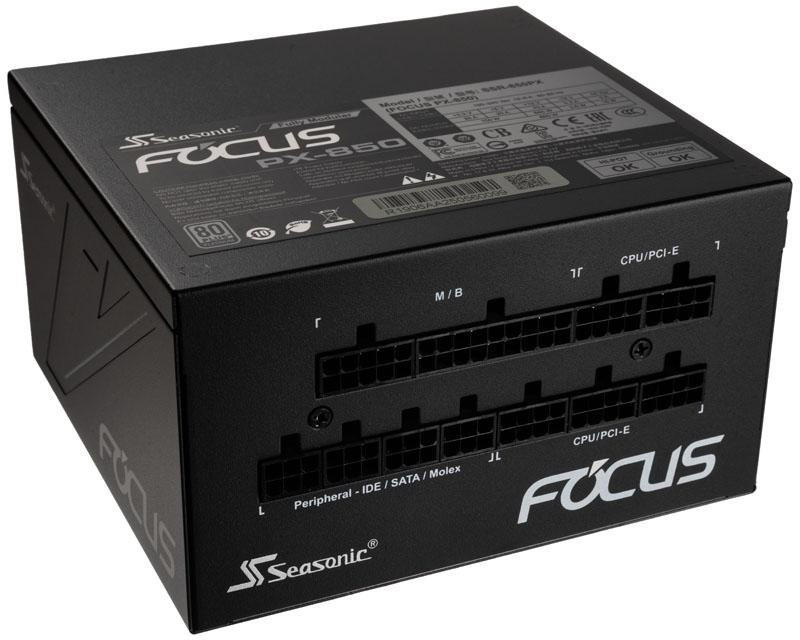
Efficiency
It refers to the ratio between the amount of power it consumes from the main source and the power it provides to your computer components. A higher efficiency PSU not only helps to reduce electricity consumption and lower your electricity bills but also generates less heat, leading to quieter operation and increased lifespan.
There are various efficiency certification levels to look for. PSU models that are certified by 80 PLUS (an independent organization promoting energy efficiency) are considered highly efficient. For instance, the EVGA SuperNOVA 850 G3, 80 PLUS Gold certified power supply unit boasts an impressive average efficiency of 90%. If you're looking for a more budget-friendly option, the Corsair CX450M, 80 PLUS Bronze certified unit offers an average efficiency of 85%.
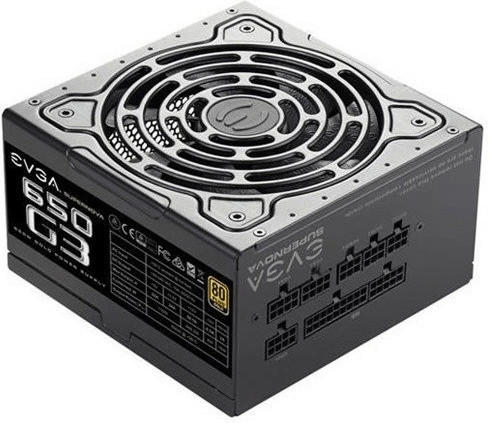
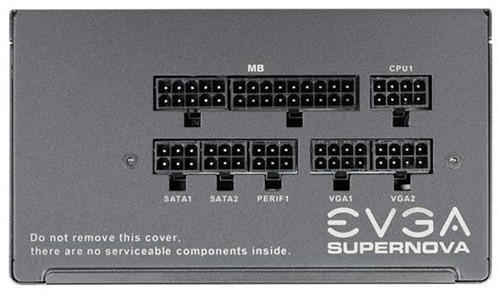
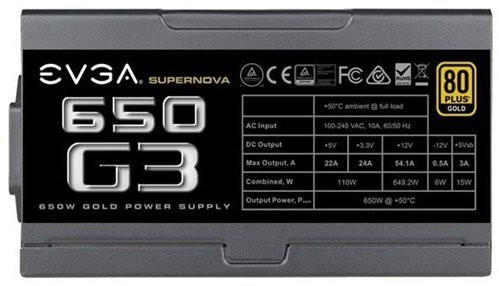
It is worth mentioning that manufacturers often divide PSU products into different wattage segments, suitable for various system requirements. For mainstream desktop PCs, wattage ratings between 500-750W are commonly used. Products in this range include the Seasonic FOCUS Plus Platinum 650W, which achieves an outstanding 94% efficiency, or the EVGA Supernova 650 P2, 80 PLUS Platinum with an excellent 92% efficiency. Whether you have a demanding gaming setup or a power-efficient office workstation, there is an efficient PSU out there for your specific needs.
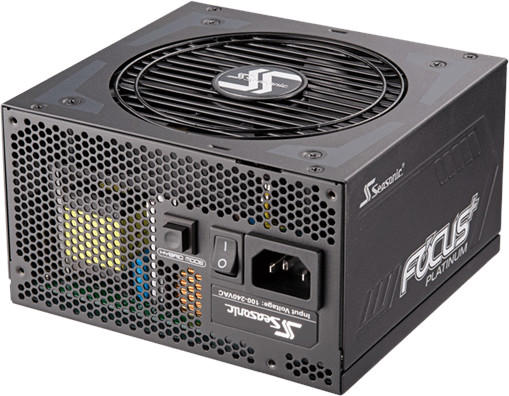
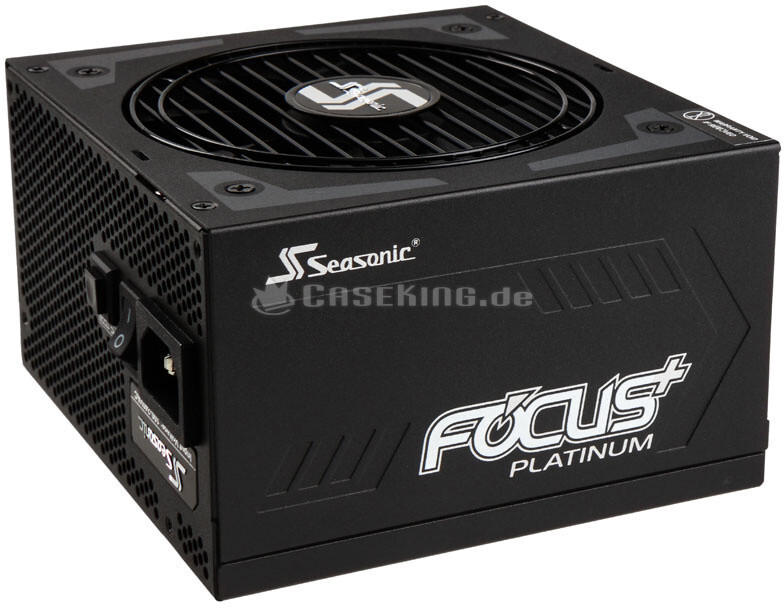
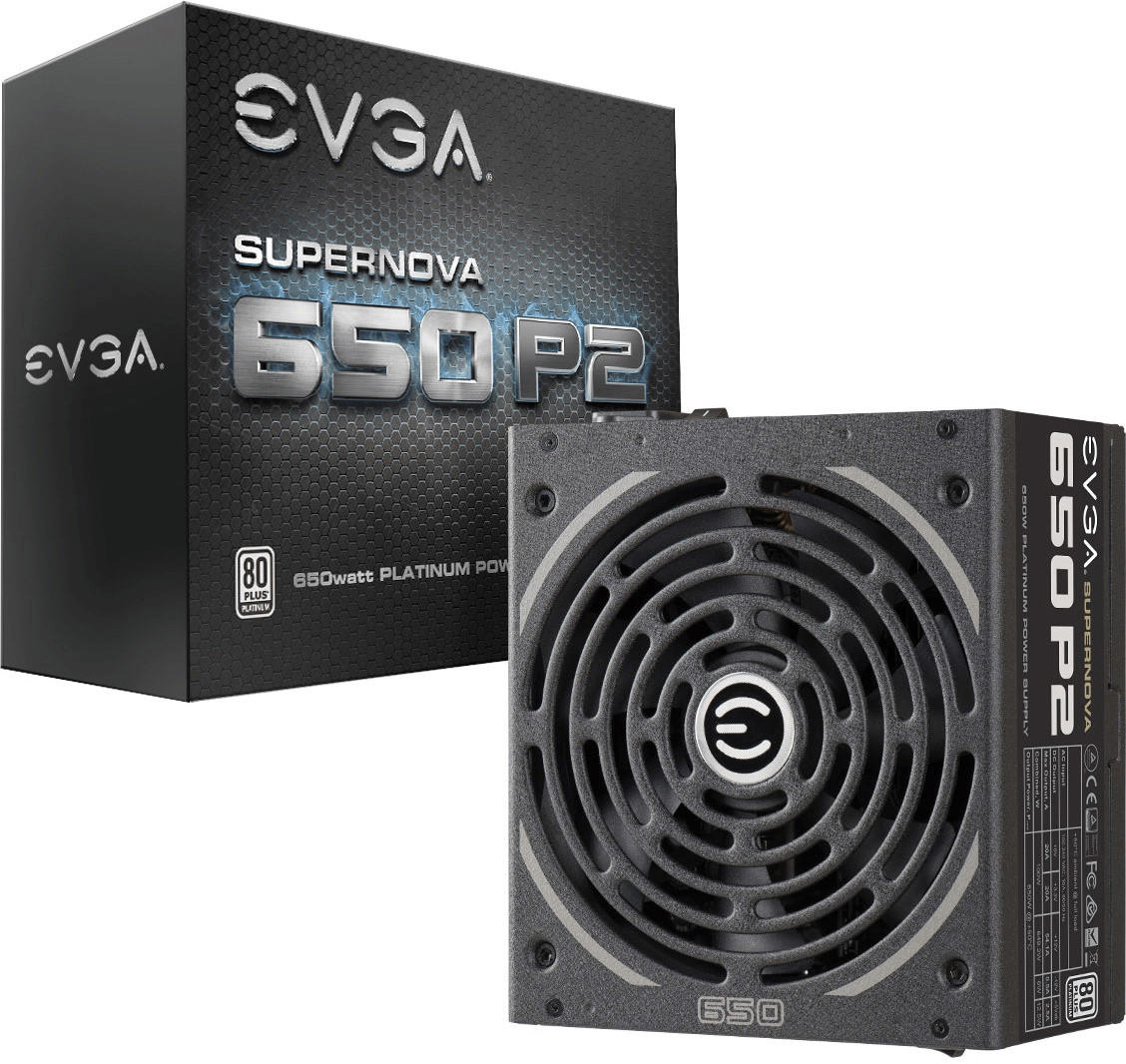
Certification
The certification of a PSU indicates its efficiency and quality. The most commonly recognized certifications are 80 PLUS, which measures the efficiency of the PSU at different loads, and indicates how much power is lost as heat. There are different levels of 80 PLUS certification such as 80 PLUS, 80 PLUS Bronze, 80 PLUS Silver, 80 PLUS Gold, 80 PLUS Platinum, and 80 PLUS Titanium, with Titanium being the highest level of efficiency. For example, the Seasonic FOCUS GX-650, which is 80 PLUS Gold certified, boasts an impressive up to 90% efficiency at 50% load.
There are a few PSU manufacturers that provide excellent options depending on your budget and requirements. In the entry-level segment, consider the affordable EVGA 100-B1-0500-KR, an 80 PLUS Bronze certified PSU with 85% efficiency at typical loads. For those seeking a mid-range option, the highly regarded Corsair RM750x is a great choice with its 80 PLUS Gold certification and an impressive efficiency of up to 92%. In the high-end segment, the Seasonic PRIME TX-1000 stands out with its 80 PLUS Titanium certification, ensuring unmatched efficiency of up to 94%. These certifications provide assurance of improved power efficiency, less heat generation, and potentially lower electricity bills for the users.
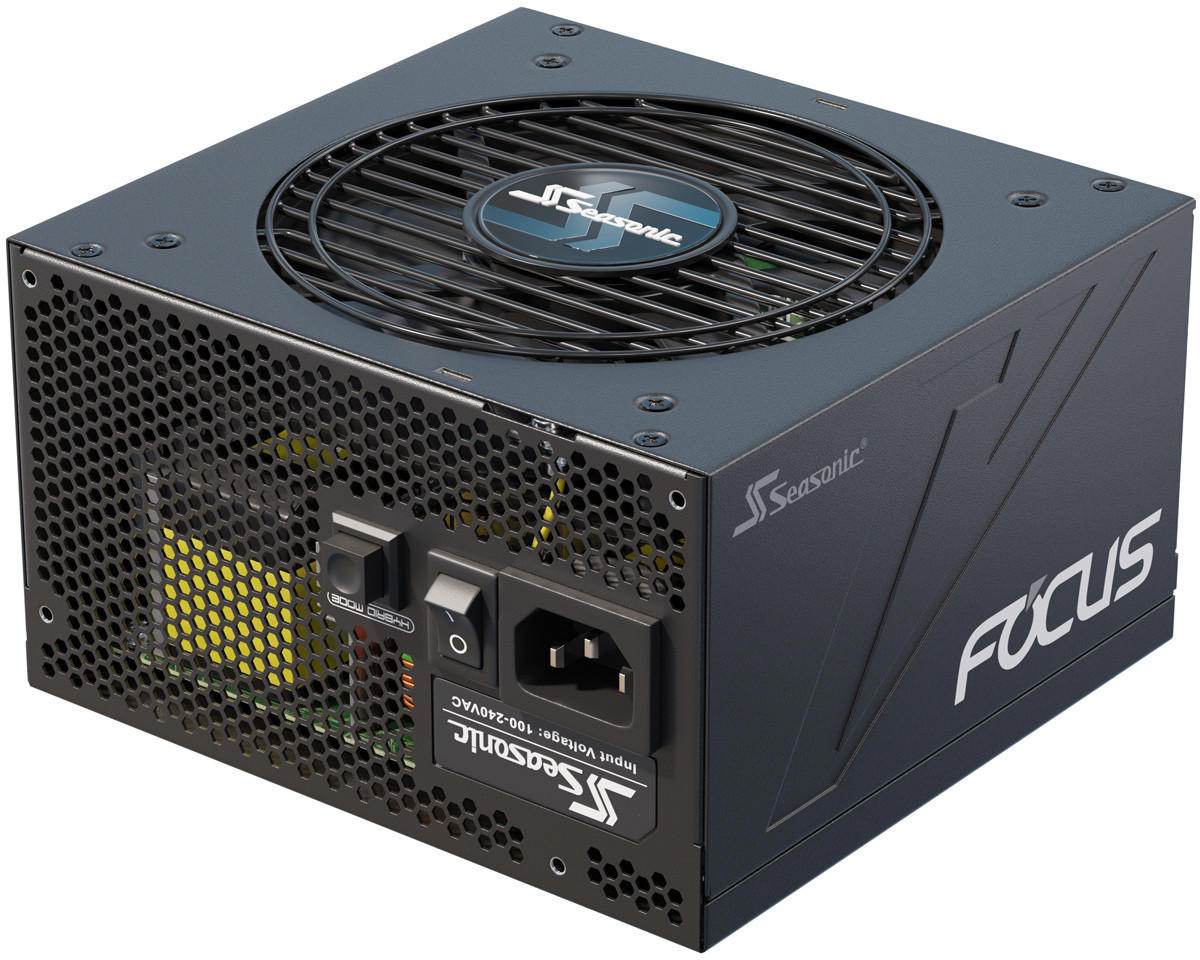
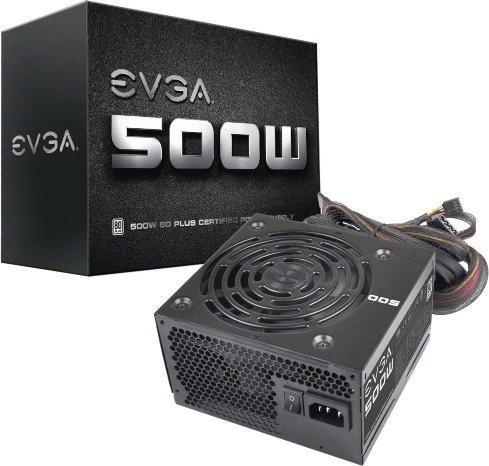
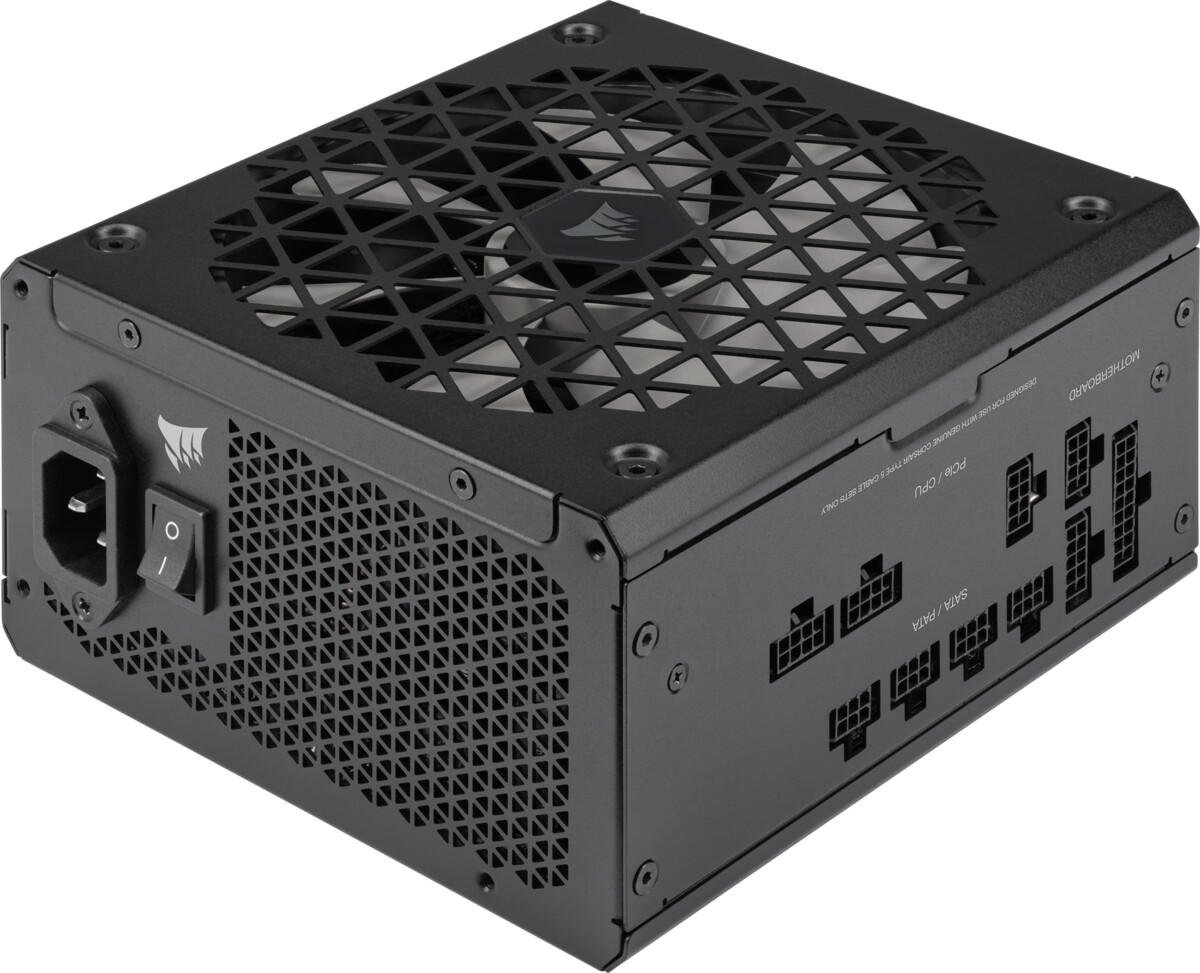
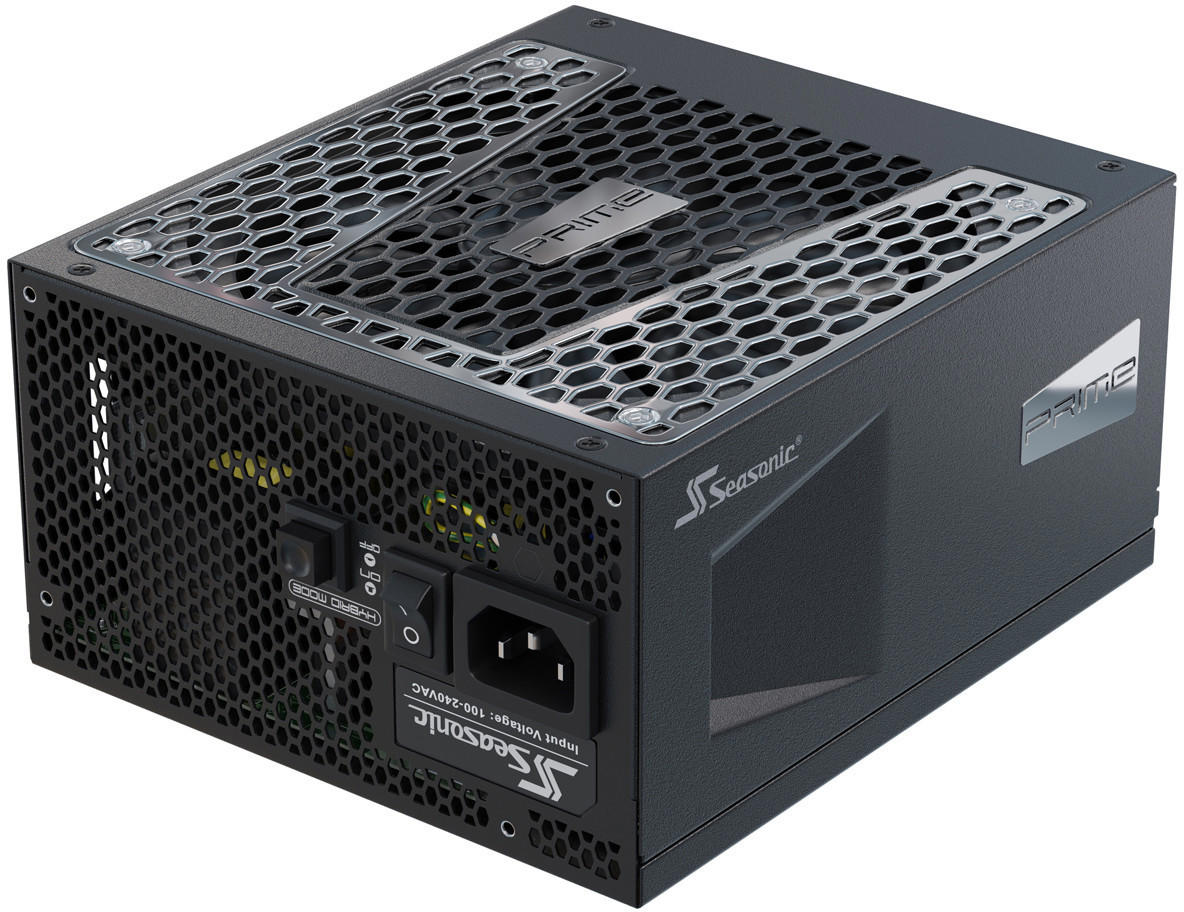
Form factor
The form factor refers to the physical size and shape of the PSU, which will determine its compatibility with your computer case. The most common form factor for desktop PCs is the ATX (Advanced Technology eXtended) form factor. Within the ATX form factor, there are variations such as ATX12V, which is designed for standard desktop applications, and EPS12V, which is designed for servers and high-performance systems.
Some popular PSUs that correspond to the ATX form factor include the Corsair RM650x which is ATX12V and EPS12V compatible, offering 650 watts of power and modular cabling for easy installation and cable management. Another option is the EVGA SuperNOVA 750 G3, featuring an ATX12V and EPS12V design, 750 watts of power, and an Eco mode for quiet operation. If you require a smaller form factor for a compact build, the Seasonic FOCUS SGX-450 is an SFX-L (Small Form Factor eXtended Length) PSU that provides 450 watts of power with a fully modular design.
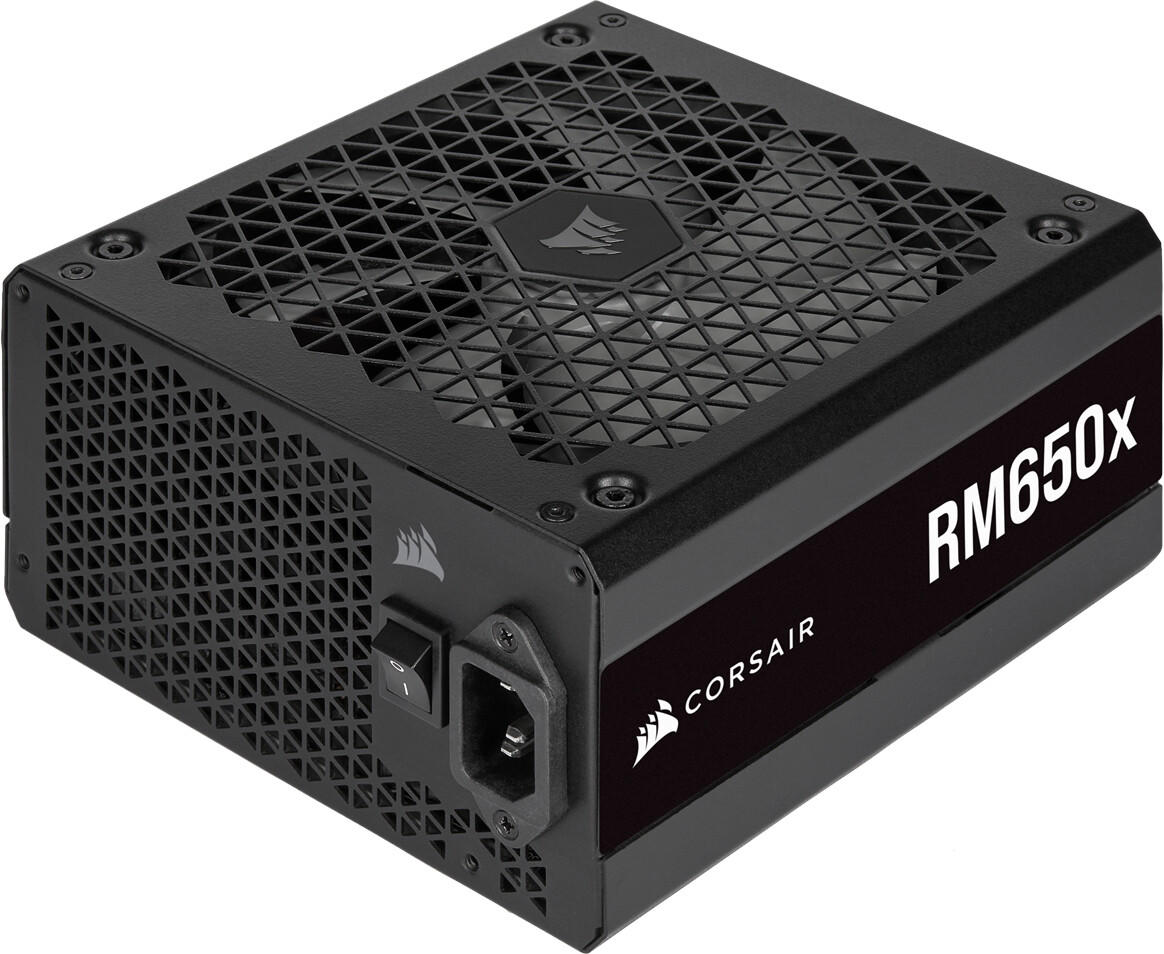
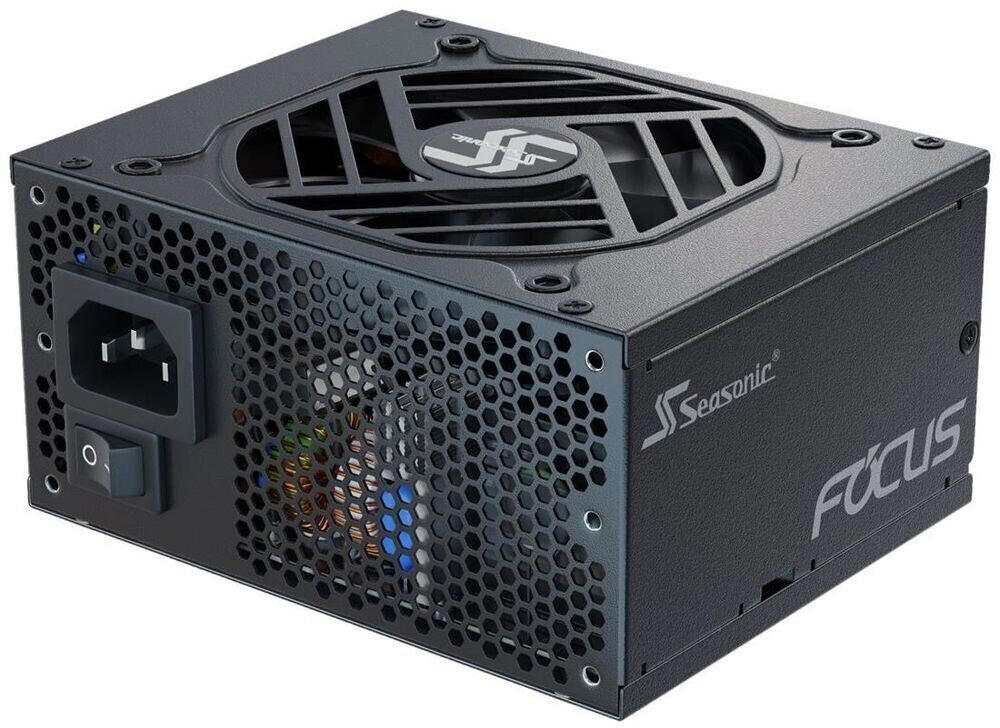
Voltage regulation
Voltage Regulation:
Voltage regulation is an essential factor to consider when choosing the best PSU for your needs. It refers to how well a power supply can maintain a stable voltage output under different loads. A good PSU should be able to provide consistent voltage levels, regardless of the workload, preventing potential damage to your components.
When selecting a PSU, it is advisable to check the voltage regulation specifications provided by the manufacturer. The ideal level of voltage regulation is within ±5% of the specified output voltage to ensure stability.
One such PSU that offers excellent voltage regulation is the Corsair RM850x 850W. It boasts an impressive voltage regulation of ±2%, ensuring exceptional stability for your system. For a budget-friendly option, the EVGA 750 GQ 210-GQ-0750-V2 is worth considering, with voltage regulation within ±3%, providing decent reliability at a competitive price point.
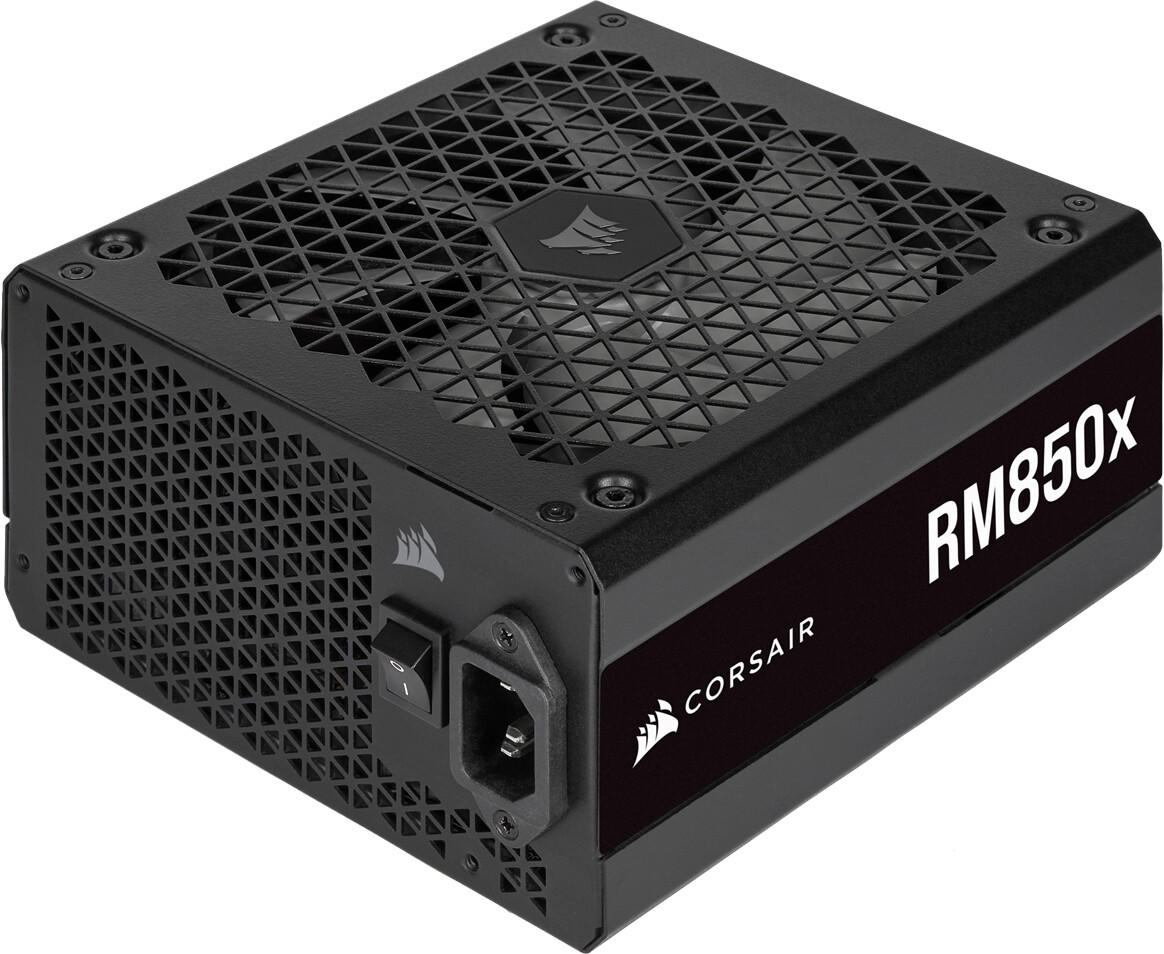
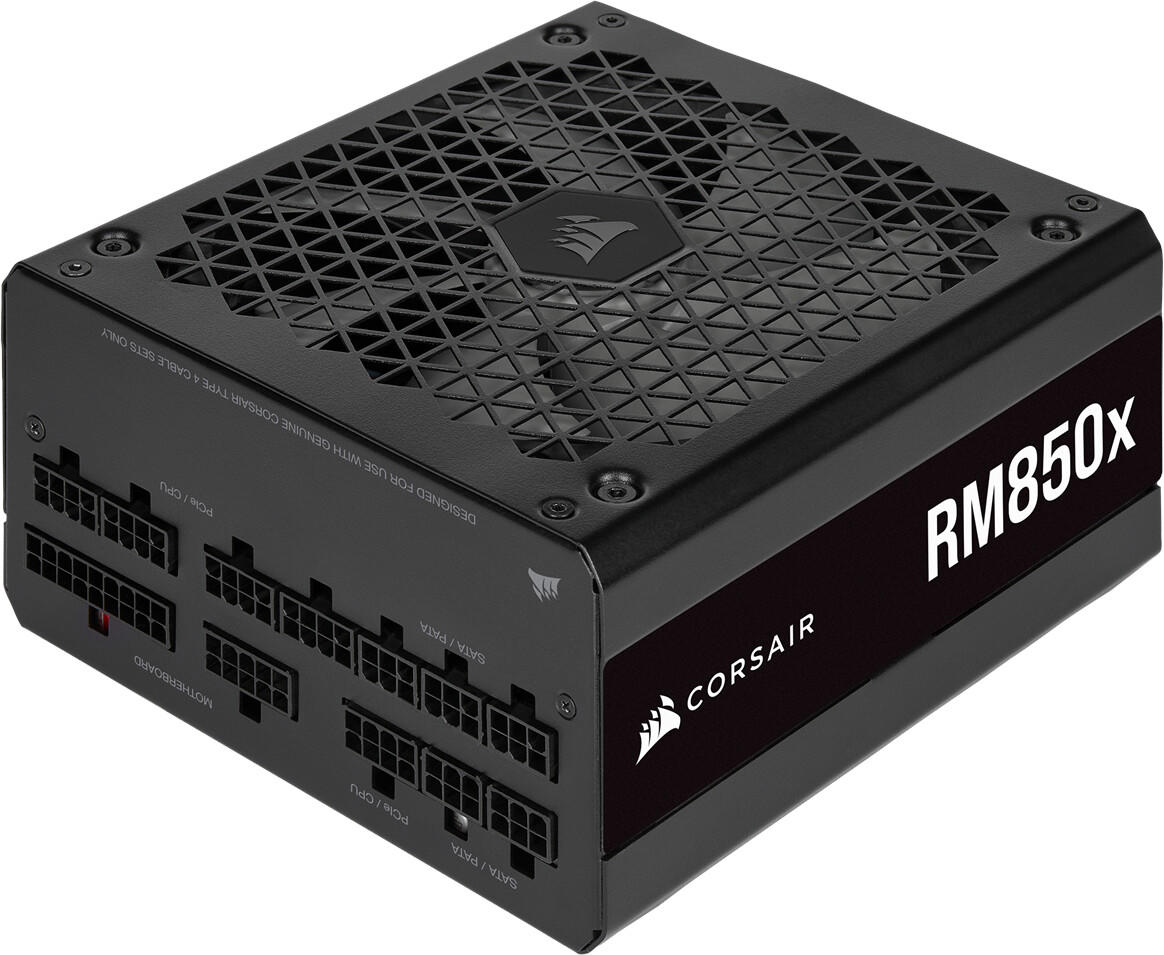
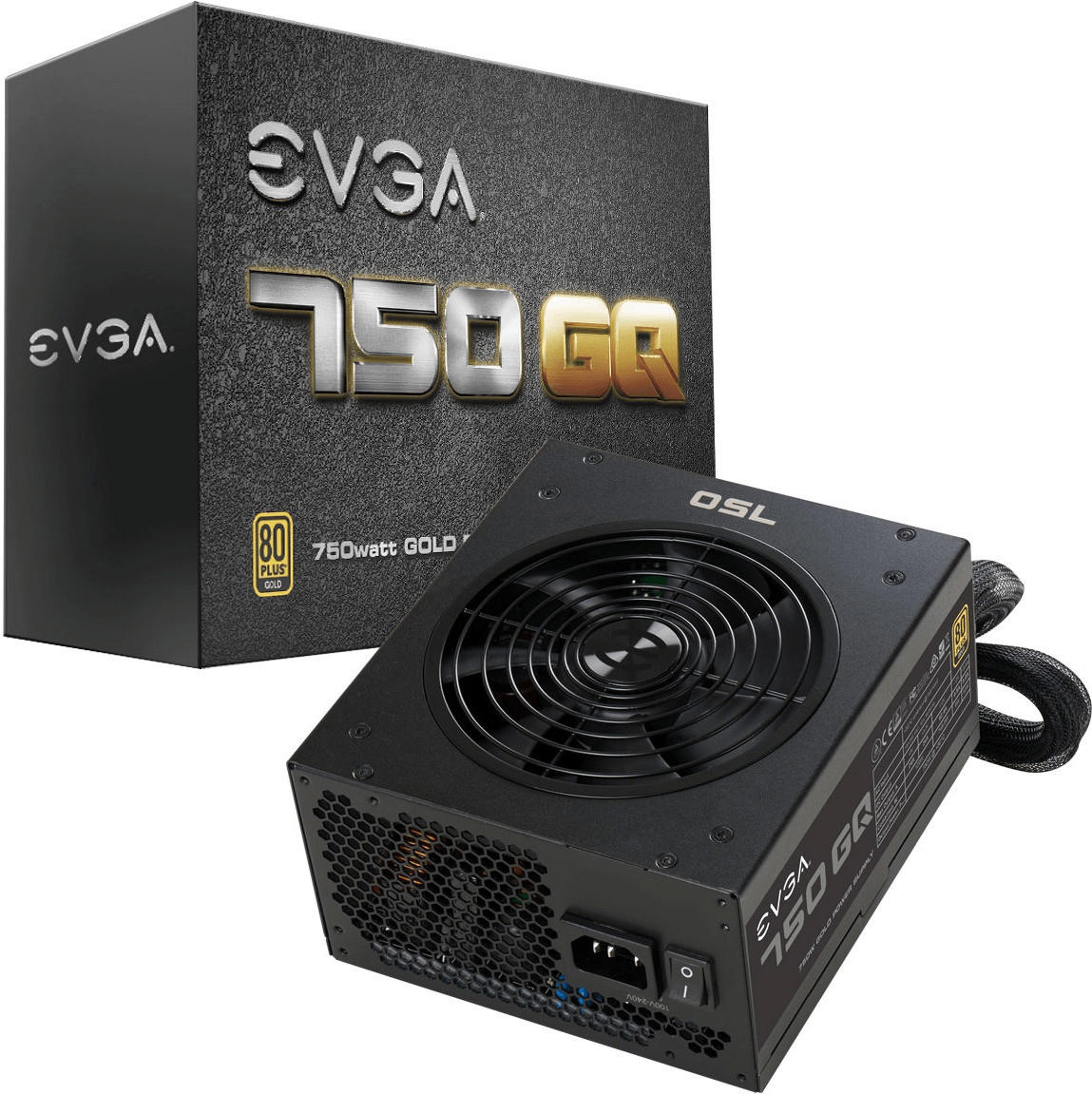
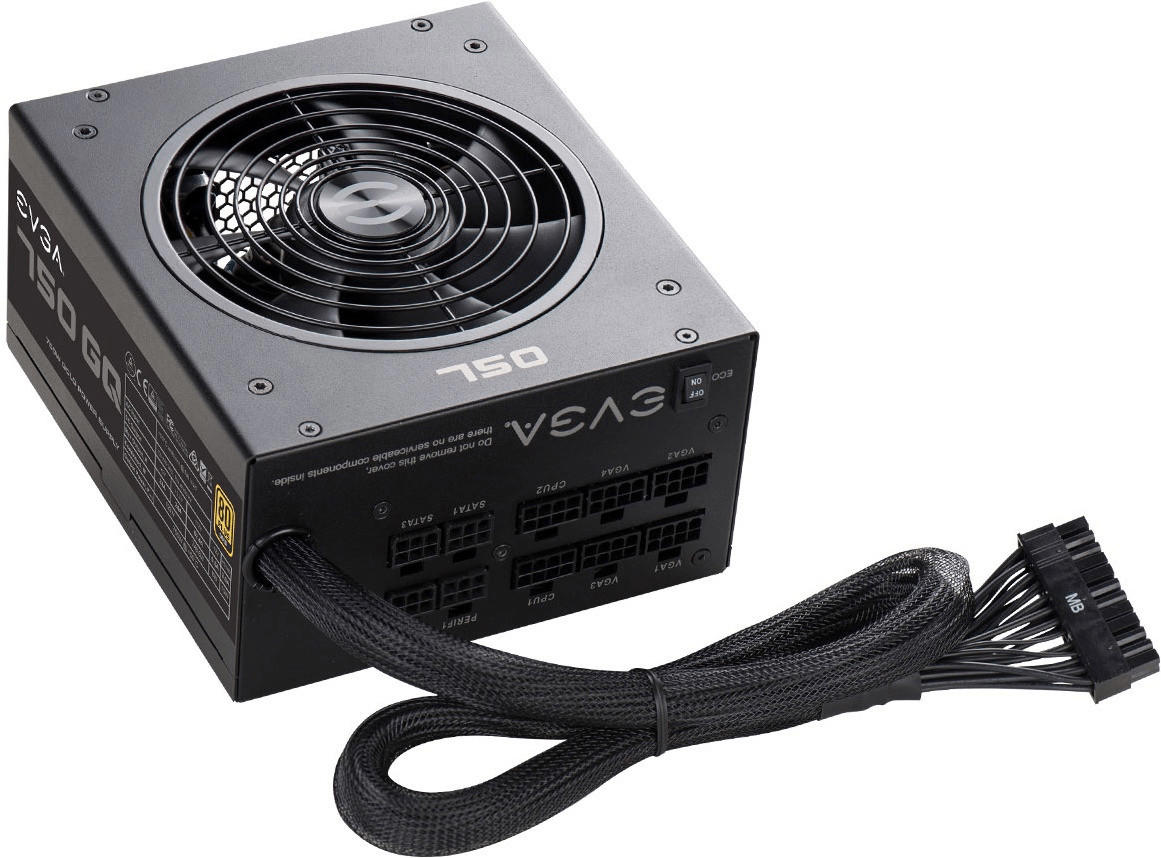
The chose of PSU should prioritize voltage regulation to safeguard your components and maintain system stability.
Current protection
It prevents sudden surges of current that could potentially damage your system or components. When selecting a PSU, it is important to look for features such as Over Current Protection (OCP) and Over Power Protection (OPP).
One PSU that offers excellent current protection is the Corsair RM Series RM850x. This PSU boasts an OCP setting that safeguards against excessive current on any single rail. It also incorporates OPP, which ensures that the total power consumption of the system stays within safe limits. Another reliable option is the EVGA SuperNOVA 750 G3. Equipped with incredibly precise voltage regulation and low ripple, this PSU includes OCP and OPP capabilities, protecting your system effectively. With these key features, both the Corsair RM Series RM850x and the EVGA SuperNOVA 750 G3 stand out as excellent choices for anyone seeking a PSU with top-notch current protection.
Temperature control
Opting for PSUs with advanced temperature monitoring and fan control features ensures optimal performance and durability. Several products on the market excel in temperature control, such as the Corsair RM750x, which utilizes a Zero RPM fan mode to reduce noise and offers an operating temperature threshold of up to 50°C. Additionally, the Seasonic FOCUS GX-850 is a top choice, boasting a highly sophisticated Smart and Silent Fan Control system to maintain the PSU's temperature within acceptable limits. It also offers an impressive tolerance for high ambient temperatures, reaching 50°C without affecting its performance. Other notable PSUs that prioritize temperature control include the EVGA SuperNOVA 750 G3 and the be quiet! Straight Power 11 550W.

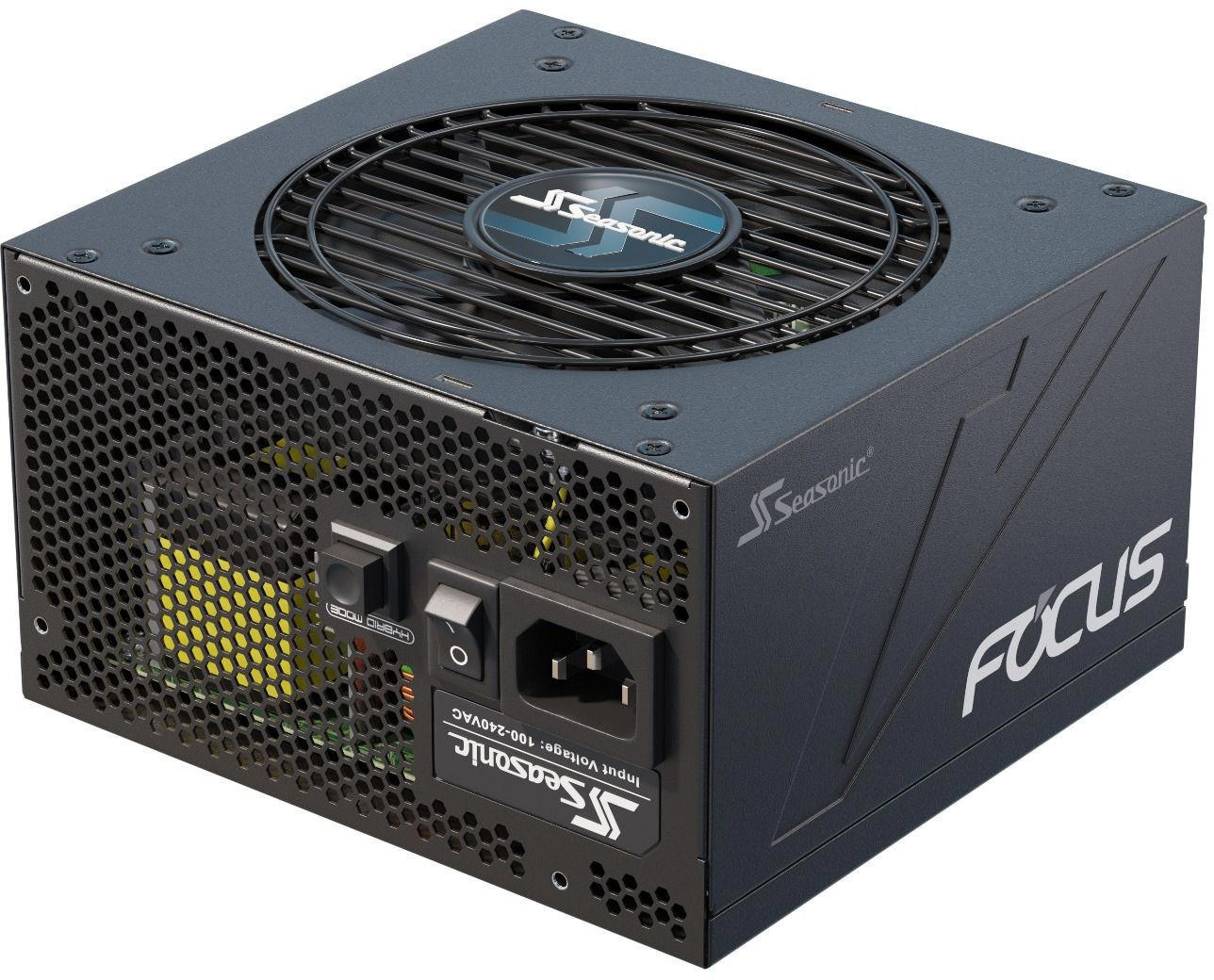
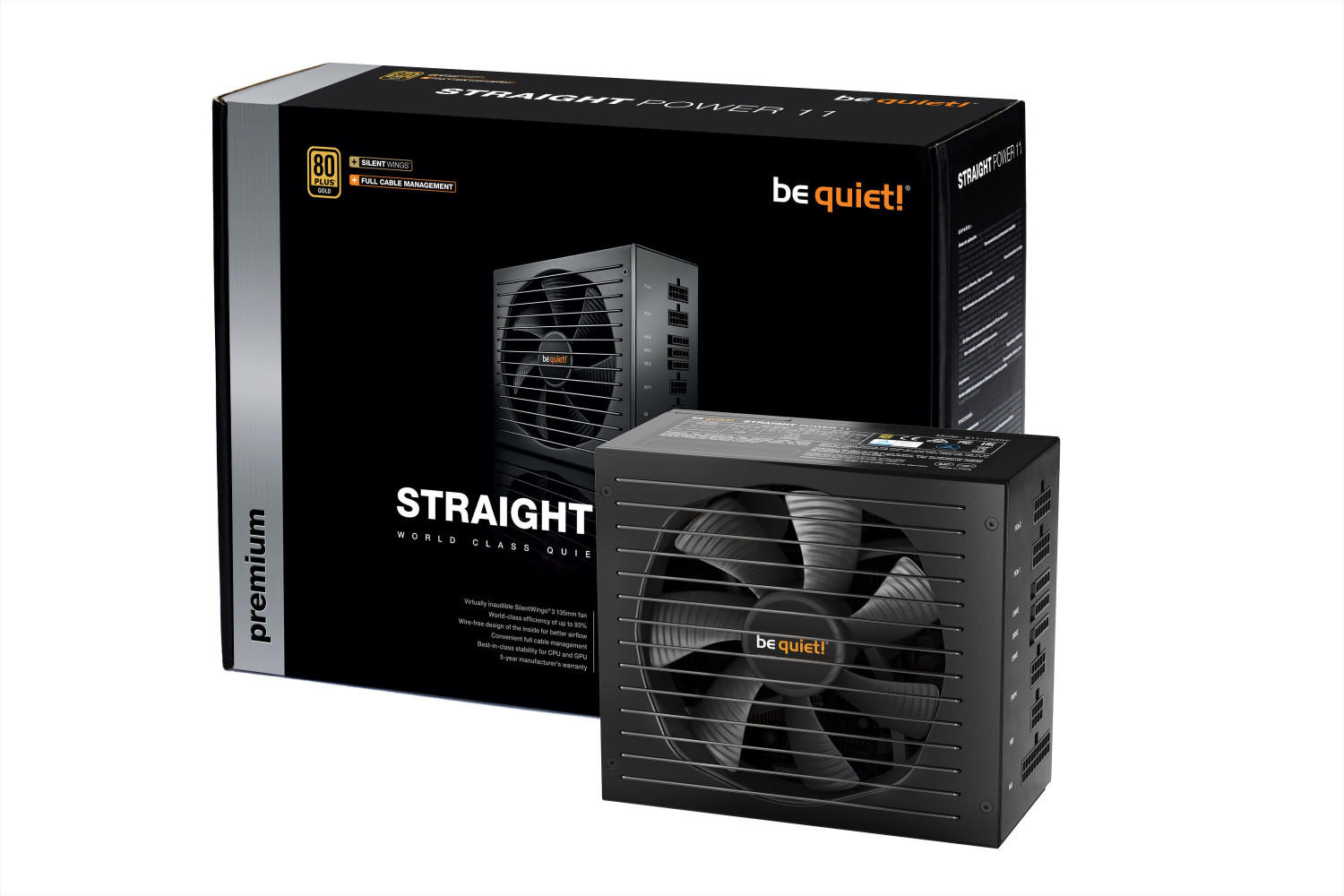
Noise levels
A PSU with low noise levels ensures a quieter and more comfortable environment for your computing needs. There are certain products in the market that excel in this aspect. For example, the Corsair RM Series RM650 PSU boasts a noise level of only 20 dBA under typical load conditions, thanks to its quiet fan operation. Another top choice would be the Seasonic FOCUS Plus 650 Platinum PSU, which offers a hybrid silent fan control feature that lets the PSU's fan remain still until a specific power threshold is reached, leading to near-silent operation. These products belong to a segment of high-performance PSUs that prioritize low noise levels, ensuring a peaceful computing experience.

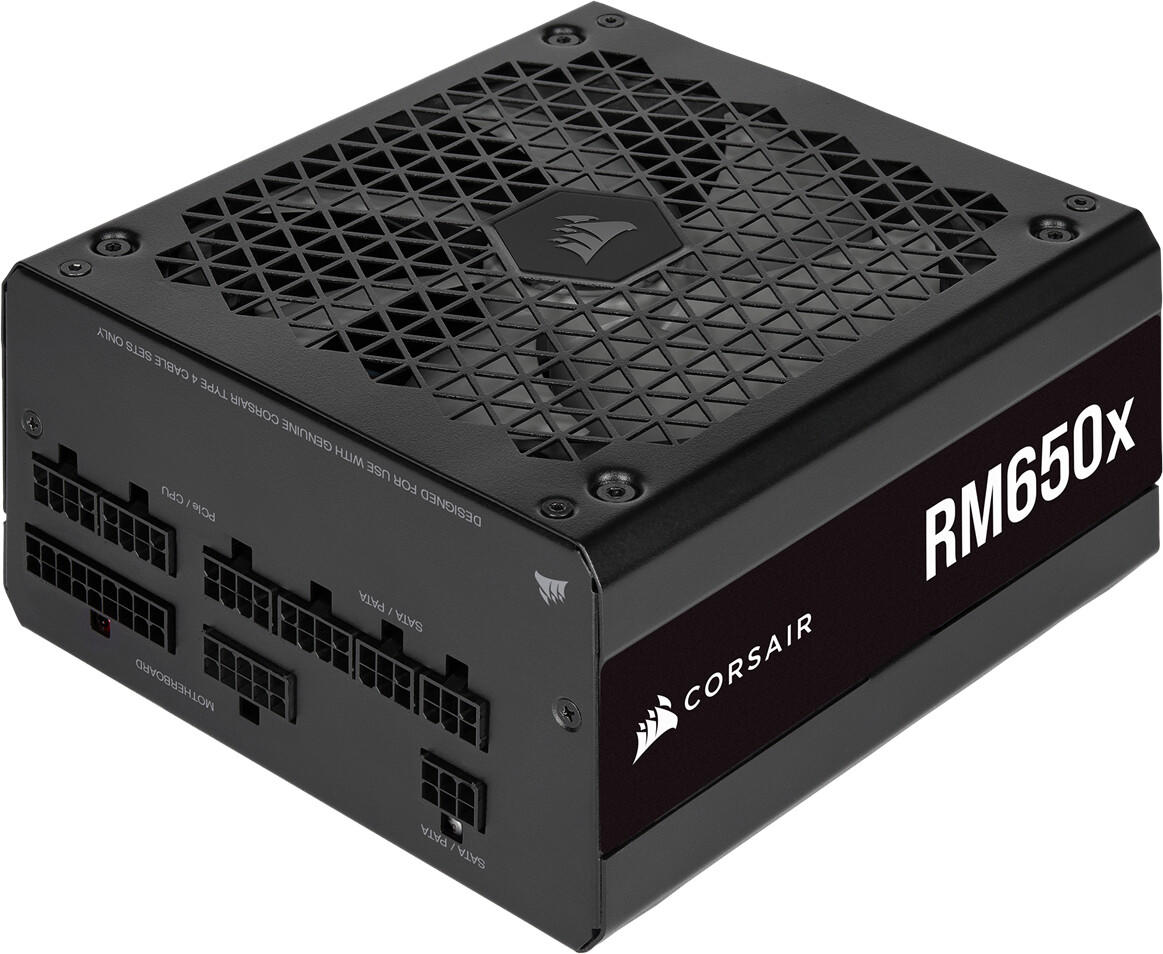


Cooling system
When choosing a PSU, it's crucial to consider the cooling system as it greatly affects the overall performance and longevity of your power supply unit. Two main types of cooling systems are commonly found in PSUs: Fan and Fanless. Fan cooling systems utilize high-quality fans to dissipate heat efficiently, ensuring continuous airflow and preventing overheating. One exceptional product within this category is the EVGA SuperNOVA 1000 G3. Equipped with a 130mm fluid dynamic bearing fan, it delivers excellent cooling performance, achieving an 80 Plus Gold efficiency rating. Additionally, its low-noise operation and double ball bearing provide enhanced durability.
On the other hand, fanless cooling systems, such as the Seasonic Prime 600 Titanium Fanless, leverage passive cooling techniques to dissipate heat without any fans. These PSUs are specifically designed for low-noise enthusiasts and offer great performance without generating any noise. The Seasonic Prime 600 Titanium Fanless features an innovative heat dissipation design, using a large heatsink and advanced material to efficiently reduce heat output. Furthermore, it comes with premium components and a high durability rating of 150°C Japanese capacitors, ensuring long-term reliability. Both the EVGA SuperNOVA 1000 G3 and Seasonic Prime 600 Titanium Fanless exemplify the best cooling solutions available in PSUs, catering to different preferences and needs.
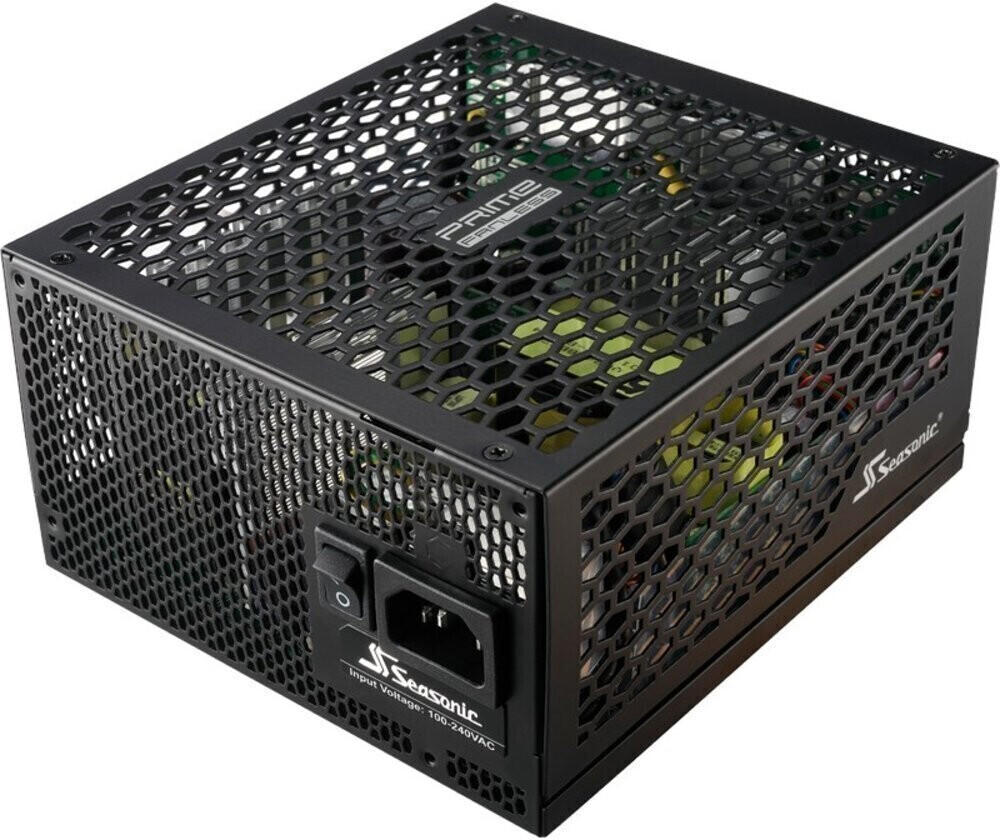
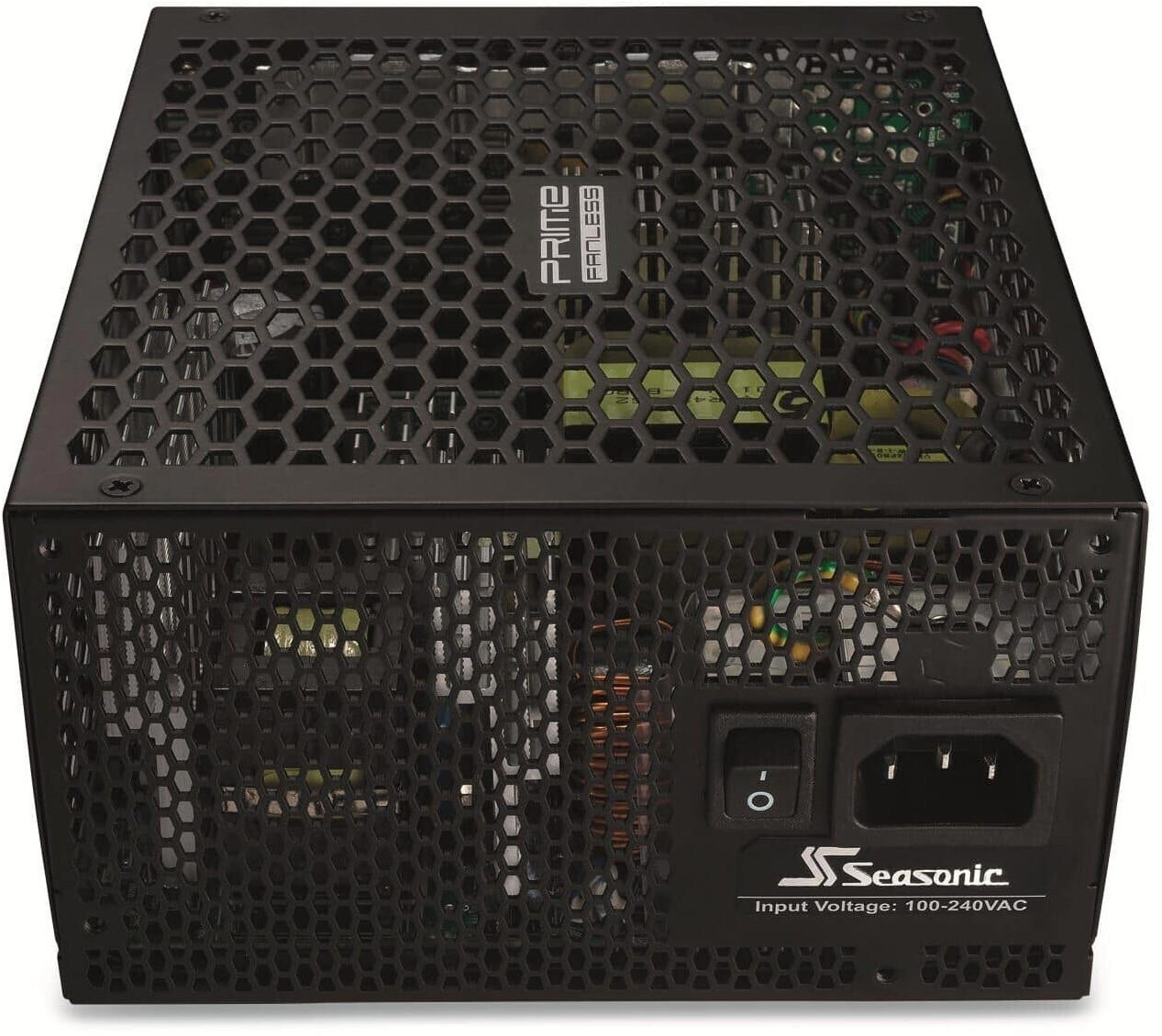
Cable management
Cable management refers to the arrangement and organization of cables inside your PSU to optimize airflow and aesthetics. This not only ensures better cooling performance but also makes future upgrades or maintenance easier.
For those looking for excellent cable management, modular PSUs are the way to go. These PSUs allow you to detach and attach cables as needed, reducing cable clutter and enabling cleaner installations. One great example of a modular PSU is the Corsair RM750x. It features a fully modular design with 80 PLUS Gold efficiency and a Zero RPM fan mode for silent operation under low load conditions. Another option for top-tier cable management is the EVGA Supernova 850 G3, renowned for its compact size, fully modular cables, and eco mode for efficient operation. Both of these PSUs provide exceptional cable management options for hassle-free builds.

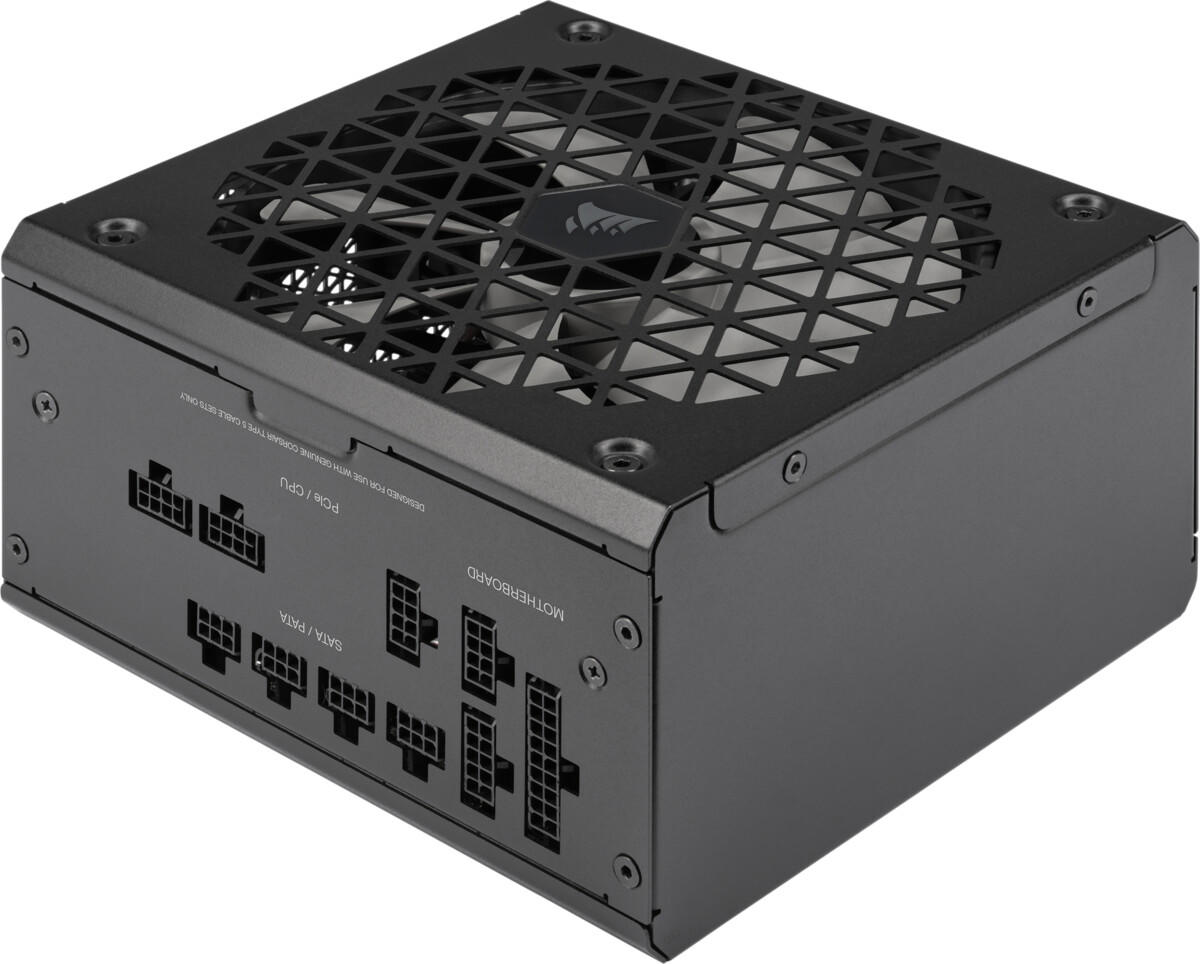
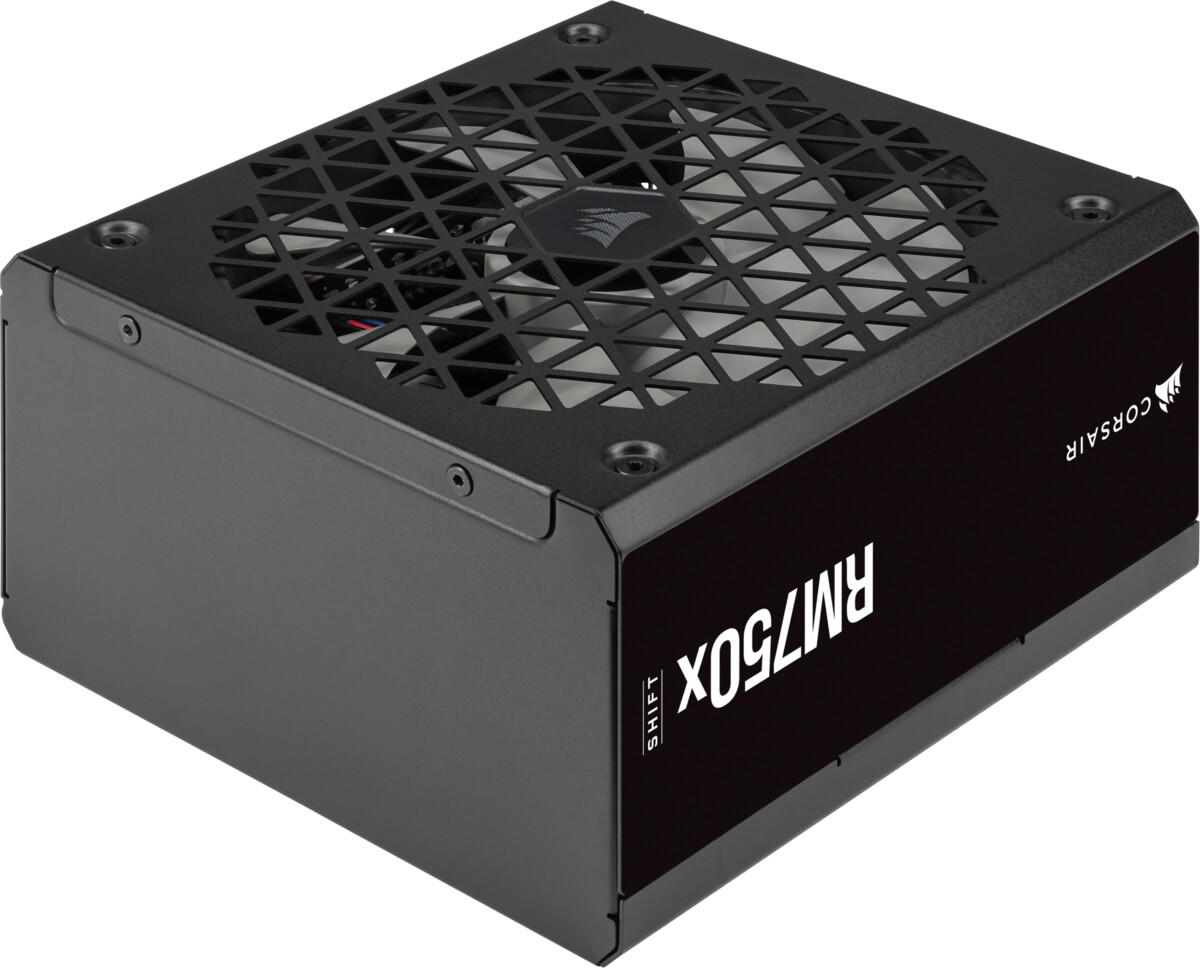
Number and type of connectors
The connectors determine the compatibility and capacity of the PSU to power different components in your system. The most common connector found in PSUs is the ATX power connector, which is used to power the motherboard. It is crucial to ensure that the PSU has the appropriate number of 24-pin or 20+4-pin ATX power connectors to match your motherboard.
In addition to the ATX power connector, check whether the PSU has sufficient connectors for other components, such as SATA power connectors for storage devices and graphics card power connectors for high-performance GPUs. For example, the Corsair RM750x is a popular PSU that provides ample connectors, including 1x ATX 24-pin, 2x EPS/ATX12V 8-pin, 4x PCI-E 6+2-pin, 8x SATA, and 8x peripheral/4-pin Molex. This ensures it can power various motherboard configurations, multiple drives, and accommodate higher-end graphics cards. Other notable options include the EVGA Supernova 850 G3 with 1x ATX, 2x EPS, 6x PCI-E, 9x SATA, and 4x Molex connectors, and the budget-friendly Seasonic FOCUS GM-500 with 1x ATX, 1x EPS, 4x PCI-E, 8x SATA, and 3x Molex connectors. Whether you're building a small office computer or a high-performance gaming rig, having the right number and type of connectors is essential for seamless operation and compatibility with your components.


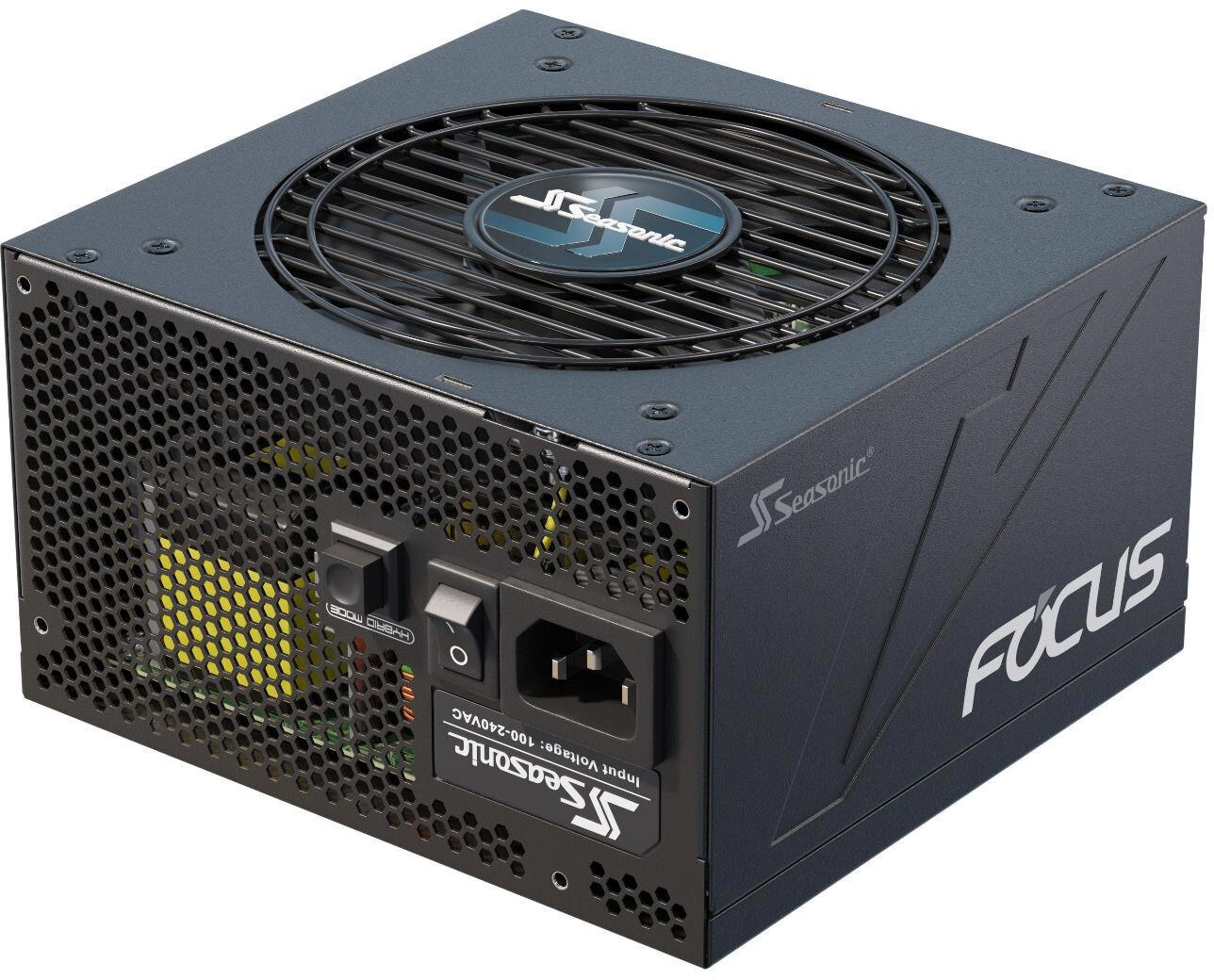
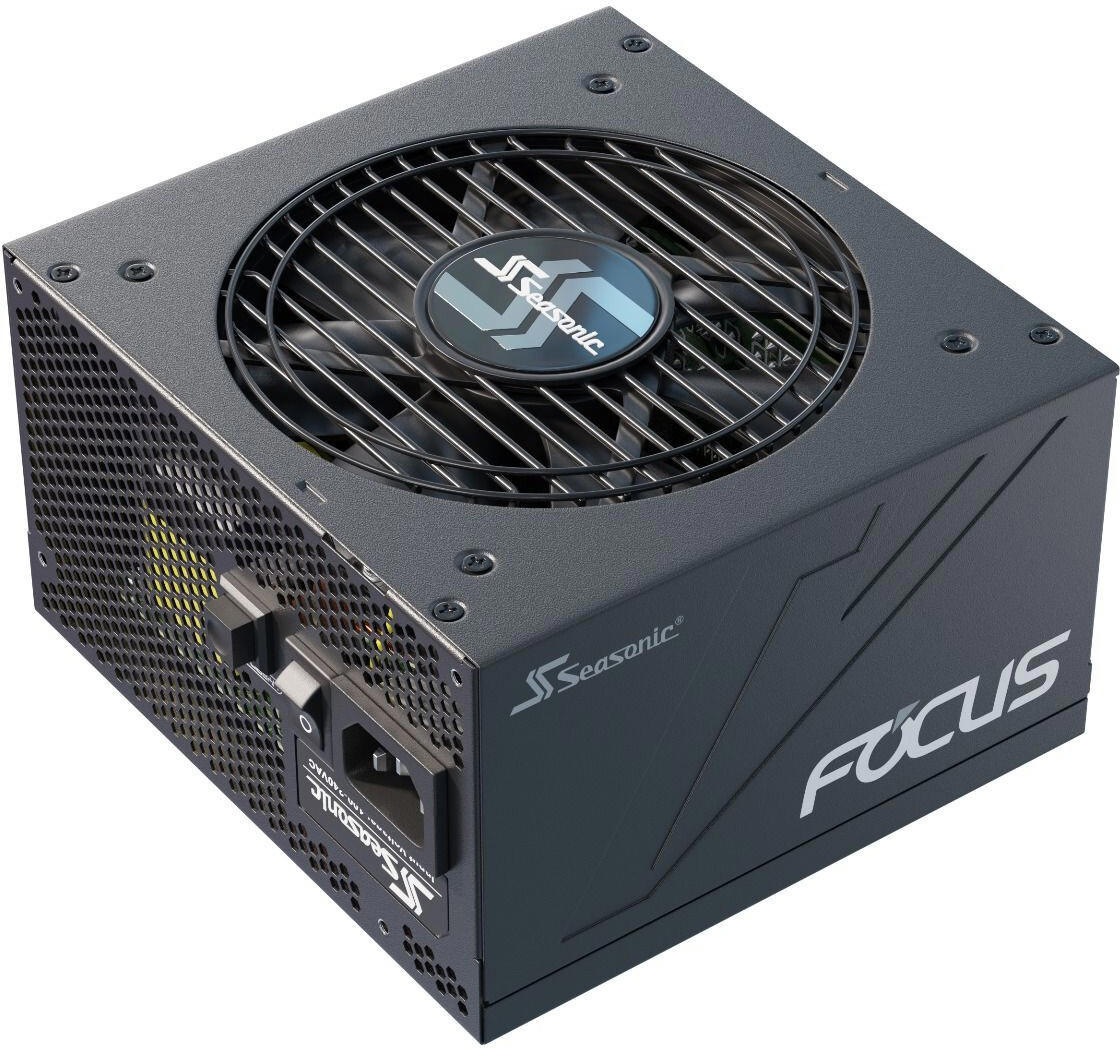
Modular or non-modular design
A modular PSU allows you to detach unnecessary cables, giving you more flexibility in cable management and potential airflow improvements. This is especially handy for smaller cases or those with limited space. Highly recommended modular power supplies are the Corsair RM650x, which offers an 80 Plus Gold efficiency rating, fully-modular design, and ultra-low noise operation. Another excellent choice is the Seasonic Focus GX-650, known for its exceptional build quality, modular cables, and 80 Plus Gold certification.
However, if you're looking for a more cost-effective option and don't mind dealing with fixed cables, non-modular PSUs can still provide reliable performance. The EVGA 500 W1, with its 500-watt power output, quiet operation, and efficient design, is an ideal option for budget-conscious users. Another budget-friendly alternative is the Thermaltake Smart 500W, known for its stable power delivery, low noise levels, and reliable performance.

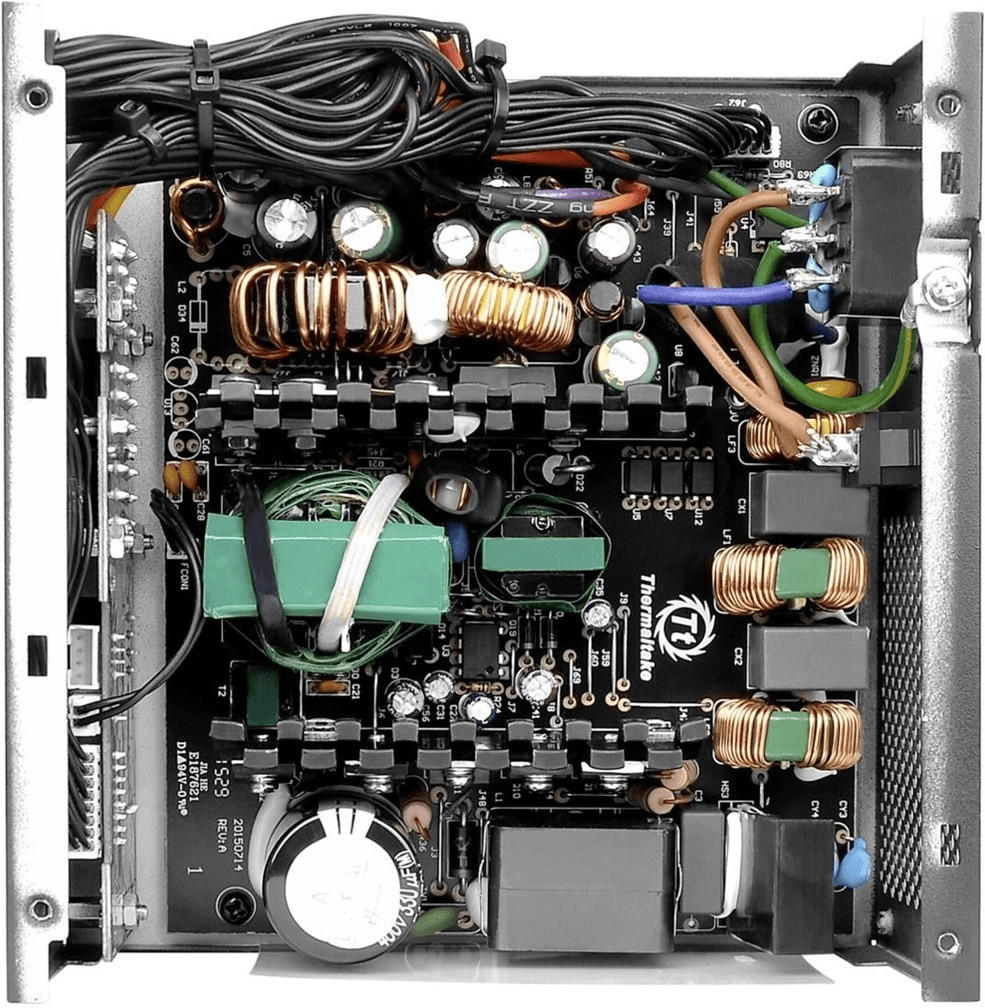
Power factor correction (PFC)
PFC helps improve the efficiency of a power supply unit by reducing the reactive power, thereby increasing the power factor closer to 1. This results in less electric power wasted and reduced strain on the electrical grid. When looking for a PSU with PFC, two common types to consider are Active PFC (APFC) and Passive PFC (PPFC).
For example, if you are in the market for a reliable PSU with APFC, the Corsair RM650x is an excellent choice. It boasts an industry-leading efficiency of up to 90% thanks to its 80 Plus Gold certification. This PSU provides a power factor of 0.99, effectively reducing the amount of reactive power and maximizing power supply efficiency. Additionally, it offers a modular design for easier cable management and a zero RPM fan mode for quiet operation.
On the other hand, a budget-friendly option with PPFC would be the EVGA 500 W1. Its 80 Plus White certification ensures an efficiency of up to 85% under typical loads. While it may not provide the same level of power factor correction as APFC, a power factor of 0.99 is still within an acceptable range, making it a suitable choice for lower power requirements. With its affordable price and reliable performance, the EVGA 500 W1 is a great option for those on a tighter budget.


Remember, when selecting a PSU, it's crucial to consider factors like Power factor correction (PFC) to ensure you are choosing a quality unit that maximizes efficiency and minimizes wasted power.
Compatibility with computer components
A PSU's compatibility is determined by factors such as wattage, form factor, and connectors. The wattage of the PSU should be sufficient to power all the components in your system without overloading or underpowering any of them. For example, the Corsair RM850x is a highly-rated PSU that provides 850 watts of continuous power, making it suitable for mid to high-end gaming rigs with multiple graphics cards and power-hungry CPUs.
Form factor compatibility ensures that the PSU fits properly into your computer case. Common form factors include ATX, SFX, and TFX. For instance, the EVGA SuperNOVA 850 G3 is an ATX PSU that is compatible with most standard-sized computer cases.
Furthermore, the PSU should have the necessary connectors to connect to all your components. Common connectors include 24-pin ATX, 8-pin CPU, SATA, and PCIe connectors. The Seasonic Focus GX-650 is an excellent choice with multiple connectors. It features 24-pin ATX, dual 4+4-pin CPU, 6 SATA, and 4 PCIe connectors, making it versatile for a variety of computer setups.
Remember, compatibility with computer components is crucial to ensure smooth and efficient performance. Take into consideration everything from wattage, form factor, and connectors to find the perfect PSU for your system.
Overload protection
It ensures that the PSU can handle the power demands of your system without compromising its functionality or causing any damage. One excellent example of a PSU with reliable Overload protection is the Corsair RM750x. With an impressive 750 Watts power output, this PSU is equipped with industry-leading control and performance. It not only efficiently delivers power to your system but also has a comprehensive protection package, including Overload protection, over- and under-voltage protection, and short-circuit protection. This ensures that your system remains safe from any unexpected power fluctuations or electrical faults. Another notable option is the EVGA SuperNOVA 850 G3, which boasts a massive power capacity of 850 Watts alongside advanced protection mechanisms to safeguard your components against possible overloading scenarios. These PSU options provide peace of mind, knowing that your system will remain protected no matter what.
In terms of market segmentation, PSUs can be divided into various wattage categories, allowing users to choose the capacity that best suits their system requirements. In the mid-range segment, the Seasonic Focus GX-650 stands out with its 650 Watt capacity and extensive protective features, including Overload protection. For enthusiasts and high-power systems, the Corsair AX1000 caters to their needs with a remarkable 1000 Watts power output and superior Overload protection mechanism. These power supply units are excellent choices within their respective segments due to their impressive performance capabilities and reliable Overload protection.


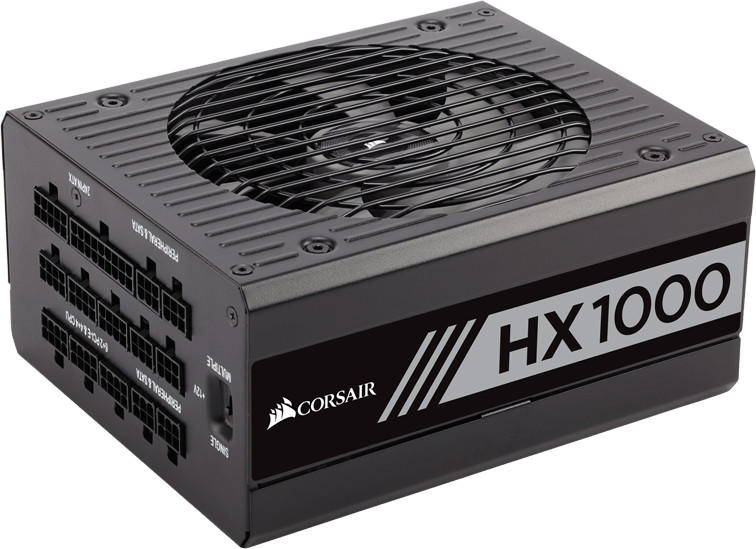
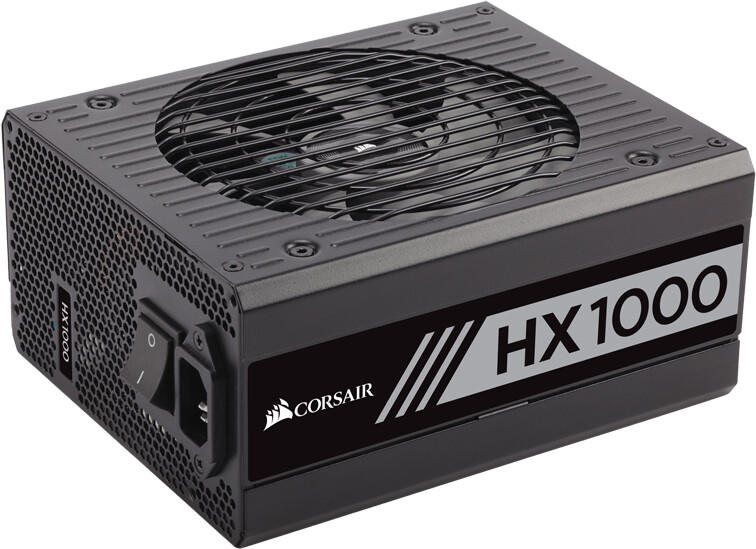
Short circuit protection
Short circuit protection ensures the safety of your computer components by immediately shutting down the power supply in the event of a short circuit, preventing any damages or potential hazards. Look for PSUs that offer this essential safeguard.
One example of a PSU that provides excellent short circuit protection is the Corsair RM750x. This power supply unit comes with built-in overcurrent protection (OCP) which monitors and limits the output current to prevent any damage caused by short circuits. Another option worth considering is the EVGA SuperNOVA 750 G3. This PSU offers complete short circuit protection as part of its comprehensive set of safety features, including overvoltage protection (OVP) and overpower protection (OPP).


These PSUs belong to the high-performance segment, offering robust short circuit protection in addition to other essential features. They are suitable for gaming PCs and high-power systems, providing the reliability and safety needed for demanding tasks.
Surge protection
A sudden surge in electrical current can potentially damage your computer components, resulting in costly repairs or replacements. Investing in a PSU with robust surge protection capabilities can provide an extra layer of defense for your system. The CyberPower CP1500AVRLCD is an excellent choice, offering a surge energy rating of 1500 joules and line conditioning technology to protect against power fluctuations. Another option is the APC BE600M1, which provides surge protection with a rating of 600 joules, along with battery backup in case of power outages. Both of these products not only safeguard your computer from surges but also offer additional features to ensure a stable and reliable power supply.
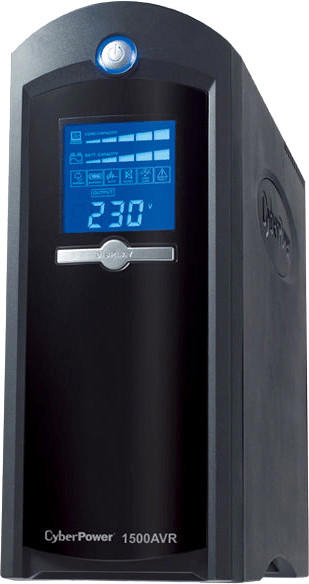
Ripple and noise suppression
Ripple refers to variations in the DC voltage output that remain after converting AC to DC. High levels of ripple can potentially impact the stability and performance of your system, causing crashes or malfunctions. Noise, on the other hand, refers to electrical disturbances that can affect the quality of audio and video signals. The best PSUs will have excellent ripple and noise suppression, ensuring a clean and stable power supply.
According to their specifications, several PSUs on the market excel in ripple and noise suppression. In the premium segment, the Corsair RM750x stands out, boasting a maximum ripple of only 20mV and an 80 Plus Gold certification. Another notable choice is the EVGA SuperNOVA 750 G5, which offers an even lower ripple of 10mV and a top-notch 80 Plus Gold efficiency rating. In the mid-range segment, the Seasonic Focus GM-650 impresses with a maximum ripple of 30mV, combined with an 80 Plus Gold certification. For budget-conscious buyers, the Corsair CX550 offers a competitive ripple suppression of 40mV, making it a reliable option. These products demonstrate excellent ripple and noise suppression capabilities, ensuring a stable and clean power supply for your system.


Fan controls
PSU fan controls play a crucial role in maintaining optimal performance and ensuring quiet operation. Many power supplies come with built-in fan controls that allow users to adjust the fan speed based on the system's needs, reducing noise levels and increasing the overall longevity of the PSU.
There are various PSU models available on the market that excel in fan controls. For instance, the Seasonic FOCUS Plus 750 Platinum SSR-750PX is a highly recommended option. It features a Hybrid Silent Fan Control, which ensures the fan remains quiet under lighter loads when fan operation is not required, enhancing the overall user experience. Another excellent choice is the EVGA Supernova 850 G5, which offers a Zero RPM fan mode that ensures the fan remains off under low loads, resulting in silent operation and increased efficiency. By including such advanced fan controls, these PSUs allow users to customize their system's cooling performance according to their requirements.
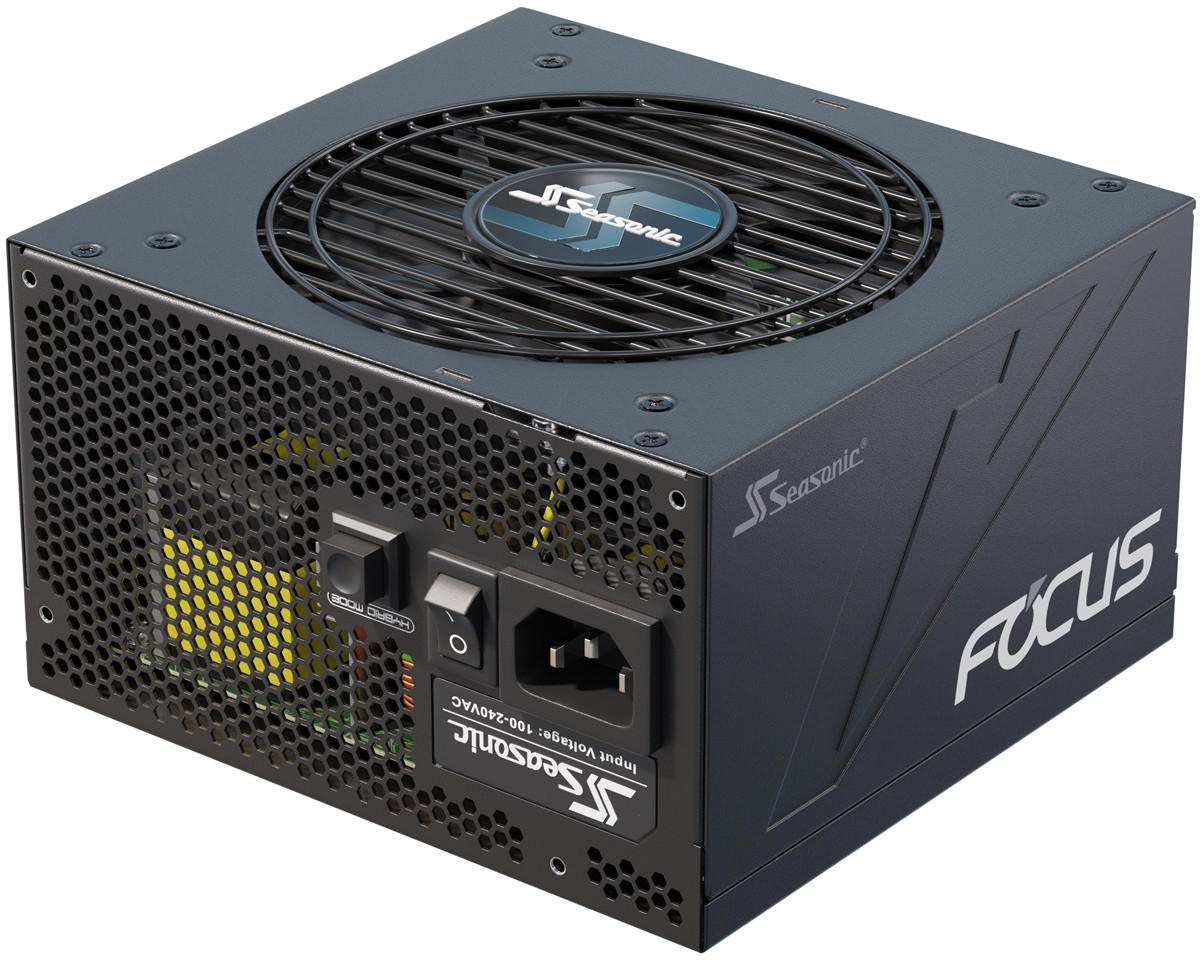
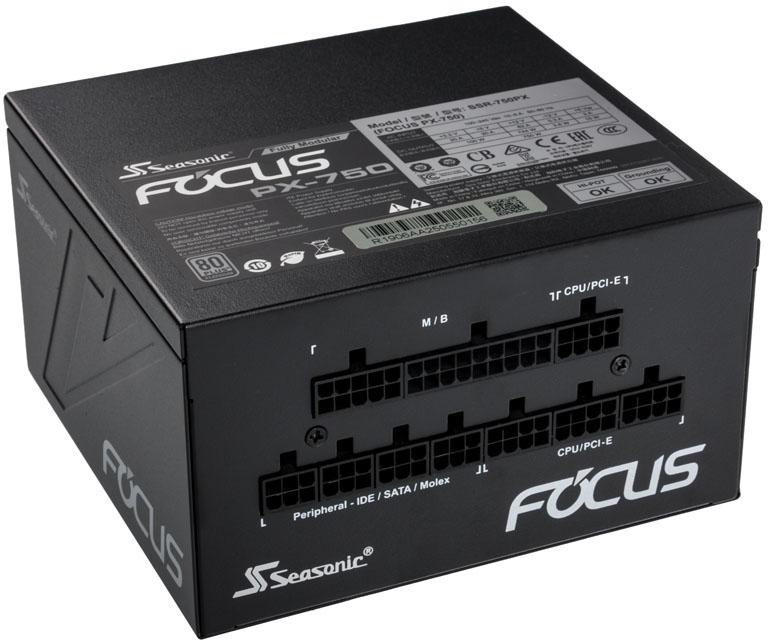
Power cord length
This may not seem like a significant consideration, but it can greatly impact the efficiency and convenience of your setup. A shorter power cord could limit the flexibility of your PSU placement, particularly in larger cases or when utilizing a separate power cord management system. Alternatively, a longer power cord provides more routing options and allows for easier cable management.
One product that offers a generous power cord length is the EVGA SuperNOVA 750 G5. With a cable length of up to 600mm, this PSU provides ample room for organizing cables even in larger cases. Similarly, the Corsair RM850x boasts a power cord measuring 700mm, ensuring flexibility in various configurations. These longer power cords make cable management and routing easier, minimizing clutter inside the case. On the other hand, there are PSUs like the SeaSonic FOCUS Plus 550 Platinum which provides a slightly shorter cord at around 580mm, targeting compact case setups without compromising on the quality of power delivery. Thus, consider the length of the power cord while choosing a PSU for a seamless setup experience.
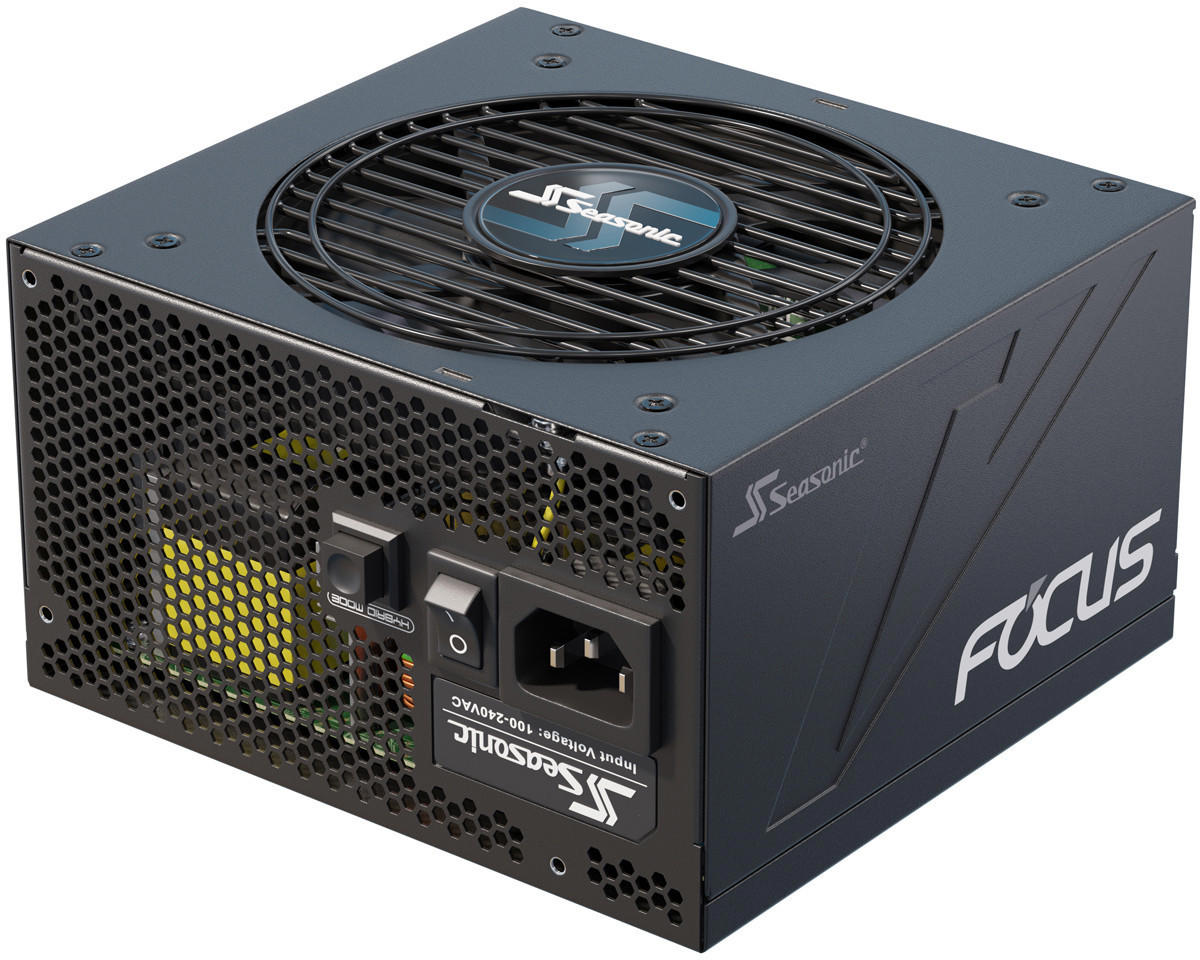
Energy-saving features
Energy-saving PSUs not only help reduce your electricity bills but also have less impact on the environment. Look for PSUs with high efficiency ratings, such as 80 Plus certification. These PSUs have been tested and verified to deliver at least 80% efficiency under different load conditions. Some product examples include the Corsair RM750x and the EVGA SuperNOVA 750 G5. These PSUs have an 80 Plus Gold certification, which means they offer excellent energy efficiency. Additionally, consider PSUs with a low standby power consumption, like the Seasonic Focus GX-750. It has a 0.15 W standby power consumption, which ensures minimal power wastage when your system is turned off or in sleep mode.


Efficiency at various loads
Efficiency is a measure of how well a PSU converts incoming AC power into usable DC power for your components. A PSU with higher efficiency will waste less energy in the form of heat, resulting in lower electricity bills and better overall performance. Generally, PSUs are most efficient between 50-75% of their rated load. Some notable examples of high-efficiency PSUs are Corsair RM750x (80 Plus Gold certified), Seasonic Focus GX-750 (80 Plus Gold certified), and EVGA SuperNOVA 750 G5 (80 Plus Gold certified).
Furthermore, PSUs can be categorized into different efficiency ratings, such as 80 Plus, 80 Plus Bronze, 80 Plus Silver, 80 Plus Gold, and 80 Plus Platinum. These ratings indicate the minimum efficiency levels that the PSU should achieve at different loads. For example, PSUs labeled with 80 Plus Gold certification have to maintain at least 87%, 90%, and 87% efficiency at 20%, 50%, and 100% loads, respectively. On the other hand, PSUs with 80 Plus Platinum certification offer even higher efficiency levels. Some of them include Corsair RM850x (80 Plus Platinum certified), EVGA SuperNOVA 850 T2 (80 Plus Platinum certified), and Seasonic PRIME 1000 W Platinum (80 Plus Platinum certified).
Active power factor correction
PSUs with active power factor correction not only help to increase efficiency but also ensure the smooth and stable flow of power to your system. One example of a PSU with active power factor correction is the Corsair RM750x. This PSU has an impressive 80 PLUS Gold efficiency rating, ensuring that it can convert the maximum amount of power from the electrical grid into usable power for your system. Its active power factor correction feature enables it to maintain a power factor of 0.99 even under heavy loads, resulting in reduced electrical waste and greater energy efficiency. Another option is the EVGA SuperNOVA 750 P2, which also boasts active power factor correction and an outstanding 80 PLUS Platinum efficiency rating. This premium PSU offers a power factor of over 0.99 and includes high-quality Japanese capacitors for reliable and stable power delivery. All these characteristics make it an excellent choice for high-performance systems.
There are different segments or groups of PSUs available on the market, catering to various power requirements. It's important to match the PSU wattage to your system's needs to ensure optimal performance. In the lower wattage segment, products like the Seasonic Focus GX-650 offer active power factor correction, 80 PLUS Gold efficiency, and a modular design for easy cable management. Mid-range PSUs, such as the EVGA SuperNOVA 750 G5, provide a larger power output while still offering active power factor correction and efficiency certifications like 80 PLUS Gold. In the high-end segment, PSUs like the Corsair AX1600i deliver exceptional power with up to 1600W, active power factor correction, and a staggering 80 PLUS Titanium efficiency rating. These premium options are perfect for enthusiasts running multiple high-powered components simultaneously.

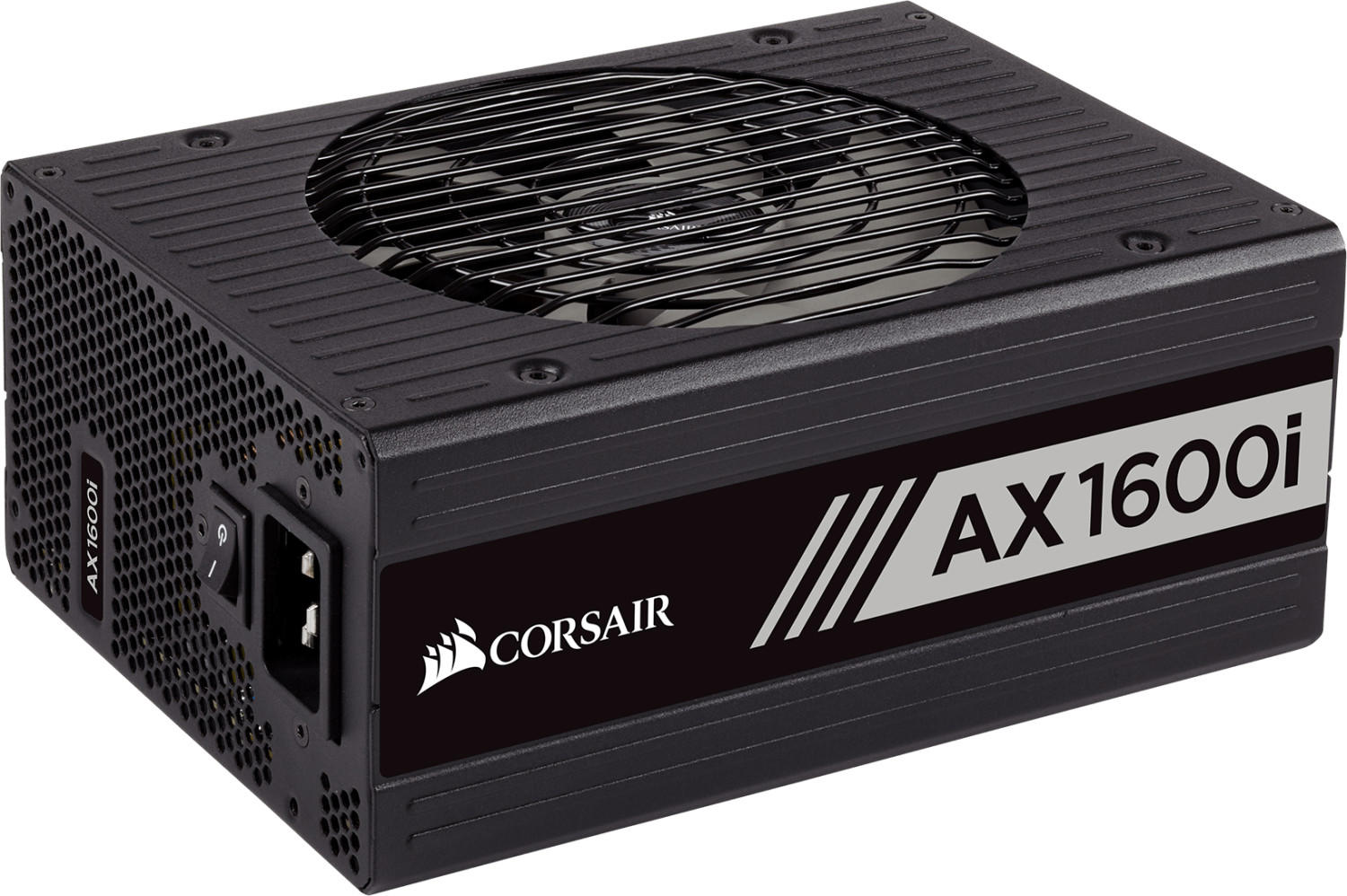
Size and dimensions
The size of a PSU is typically measured in millimeters and is directly related to the form factor of the PC case. A common form factor for PSUs is the ATX (Advanced Technology Extended) which measures 150 mm in width, 86 mm in height, and 140 mm in depth. However, there may be variations in size depending on the wattage of the PSU. For example, the Corsair RMx Series RM750x, Cooler Master MasterWatt 650, and EVGA Supernova 850 G3 are ATX PSUs with different dimensions, so it is important to check the specific measurements. It is also worth mentioning that some PSUs come in smaller form factors such as SFX (Small Form Factor) and TFX (Thin Form Factor), which are suitable for compact cases. Examples of these PSUs include the SilverStone Technology SFX Series SX650-G and be quiet! SFX L Power 600W. Ultimately, choosing the right size PSU ensures that it fits properly within your PC case, allowing for easy installation and efficient cable management.
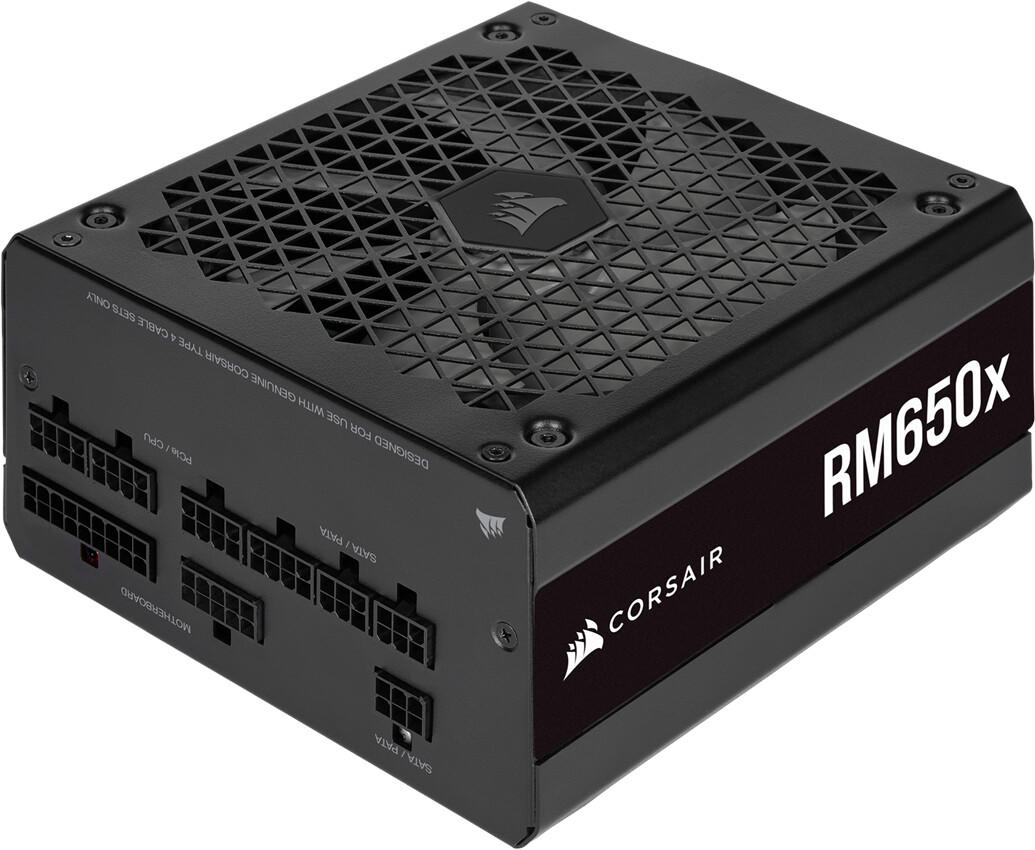
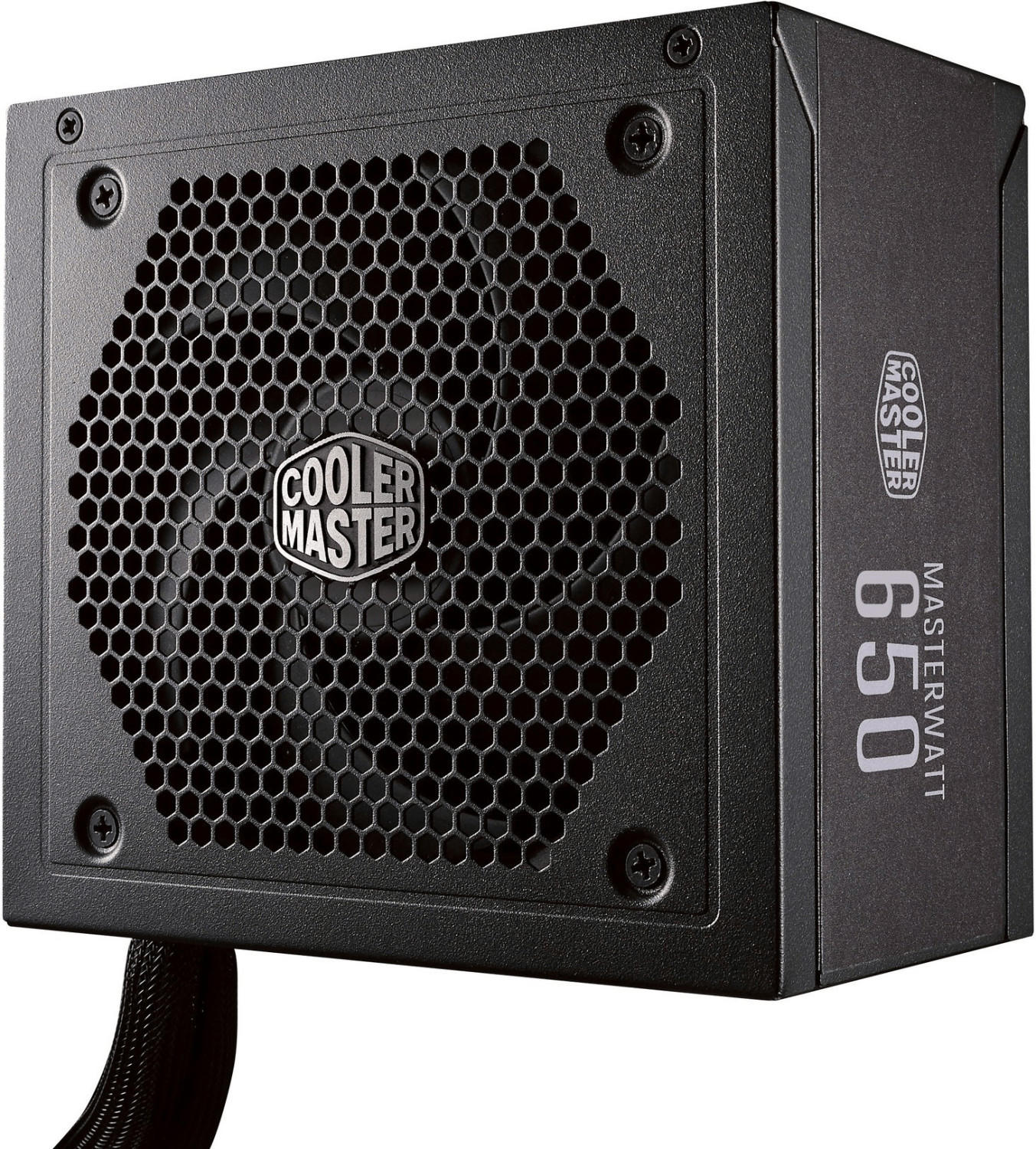
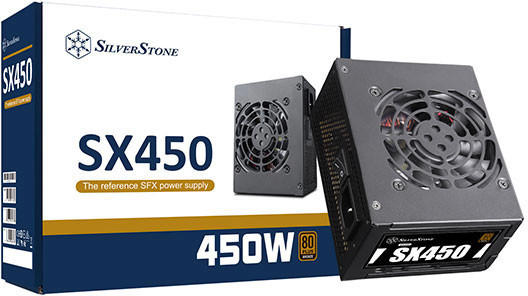
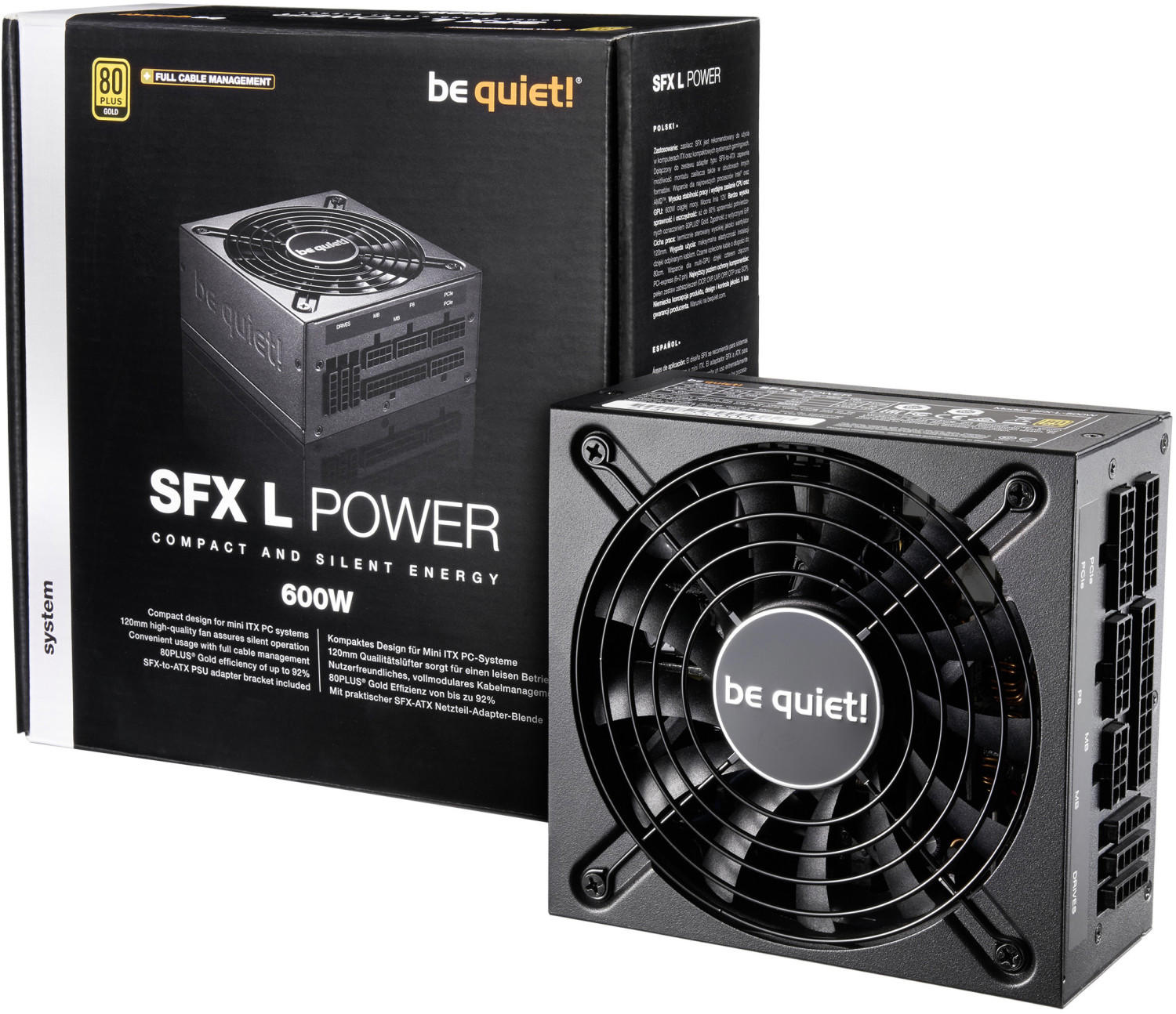
Safety approvals
Look for PSUs that have been certified by regulatory bodies such as Underwriters Laboratories (UL), Canadian Standards Association (CSA) and TÜV SÜD. These certifications ensure that the PSU meets strict safety standards and will operate reliably without posing a risk of electrical hazards.
There are various well-regarded PSUs available that hold safety approvals. In the gaming segment, the Corsair RM750x with UL certification guarantees the PSU's safety and performance. For PC enthusiasts, the Seasonic FOCUS GX-750 with both UL and CSA approvals ensures a high level of safety. Additionally, the EVGA SuperNOVA 750 G5 comes with TÜV SÜD certification, guaranteeing exceptional safety standards.


Input voltage range
The input voltage range refers to the acceptable range of voltages that the PSU can handle from the power source. It is important to ensure that the PSU you choose matches the voltage of your specific power outlet.
For example, high-quality PSUs like the Corsair RM750x and EVGA SuperNOVA 850 G5 offer an input voltage range of 100-240V, making them suitable for use in various countries with different voltage standards. These PSUs can automatically detect the input voltage and adjust accordingly, providing stable power output regardless of the voltage source. On the other hand, some budget-friendly options like the Thermaltake Smart 500W and Cooler Master MWE White 600W have a more limited input voltage range of 200-240V, making them ideal for users residing in areas with a consistent voltage standard. It is crucial to choose a PSU with the appropriate input voltage range to ensure compatibility and reliable operation.


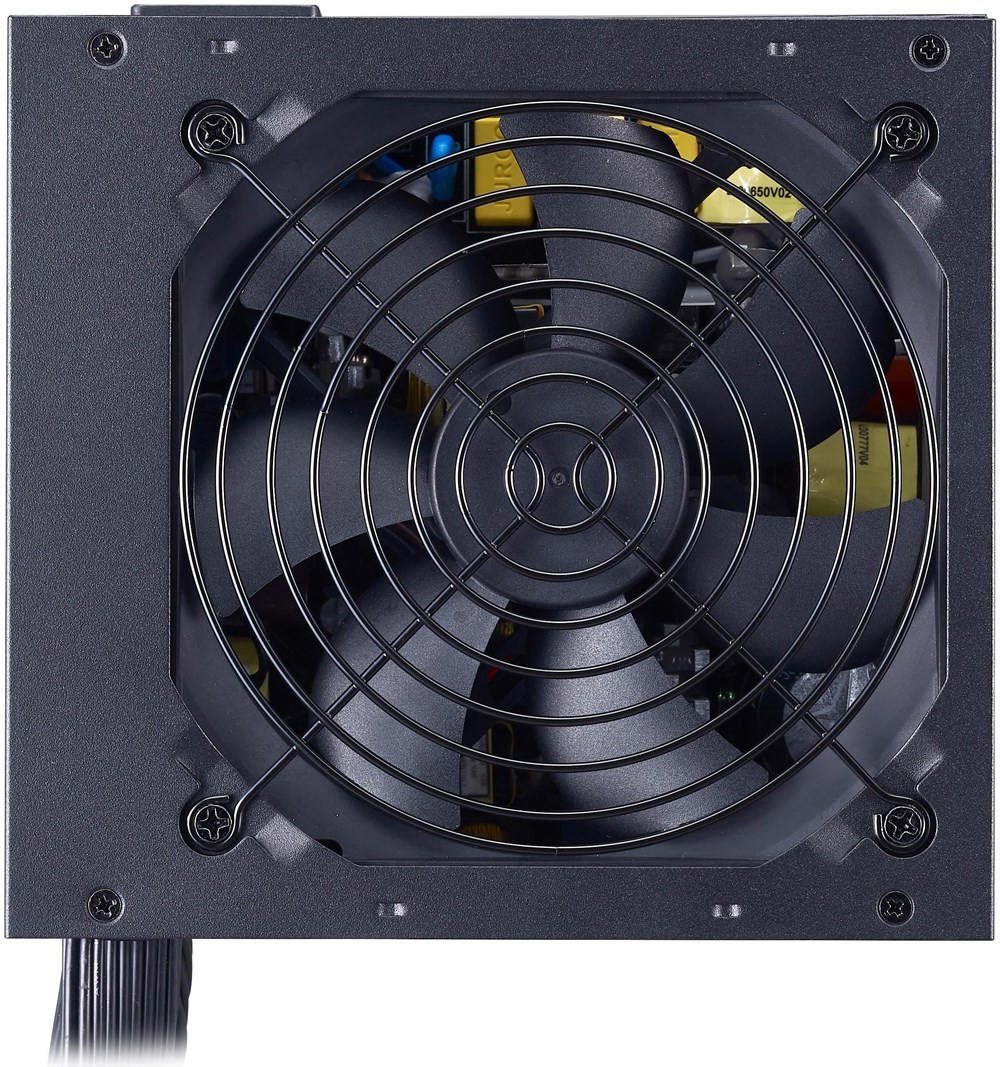
Load regulation
In the mid-range segment, the Corsair RM750x showcases excellent load regulation with a tight voltage output. With a ±2% voltage regulation, it ensures consistent and reliable power delivery across a wide range of loads. Another notable option is the EVGA Supernova 750 G3 with a ±1% voltage regulation, making it a robust choice for enthusiasts and power-hungry systems. For budget-conscious builders, the Seasonic S12III 550 offers reliable load regulation with a ±3% voltage tolerance, providing stability at an affordable price point.
In the high-performance segment, the Corsair AX1000 boasts outstanding load regulation with an impressive ±0.6% voltage regulation. This premium PSU is ideal for demanding gaming rigs and high-end workstations that require optimal voltage stability under heavy loads. Another top-tier option is the EVGA Supernova 1600 T2 with an extraordinary ±0.5% voltage regulation, ensuring unparalleled power delivery for extreme overclocking or multi-GPU setups.



Paying attention to load regulation is crucial when choosing a PSU. It helps maintain stable voltage output, guaranteeing the reliable operation of your PC components. The aforementioned PSU models are commendable choices that exemplify the importance of load regulation in differentiating between good and poor power supply options.
Operating temperature range
The operating temperature range refers to the acceptable temperature range in which the PSU can operate efficiently and safely. It is crucial to select a PSU that can withstand the environment conditions to prevent overheating or performance issues.
There are different PSU options available on the market based on their operating temperature ranges. Some entry-level PSUs have an operating temperature range of around 0°C to 40°C, making them suitable for standard office or home usage. For example, the Corsair CX Series CX450 has a rated operating temperature range of 0°C to 40°C. On the other hand, for more demanding applications or overclocking, it is advisable to choose a PSU with a wider operating temperature range, typically extending from -20°C to 50°C. The EVGA SuperNOVA 750 G3 is a high-end PSU that is designed for extreme overclocking and is engineered with a rated operating temperature range of -20°C to 50°C, ensuring stable and efficient performance even under extreme conditions. Therefore, consider selecting a PSU with an operating temperature range that suits your specific needs and provides a safety margin to account for any environmental fluctuations.
LED lighting indicators
These indicators provide users with essential information about the state of their PSU, helping to monitor its performance and alerting them to any potential issues. For instance, the Corsair RM750x comes with an LED-lit fan that changes color to indicate different power modes, making it easier to identify the operating status. Similarly, the EVGA SuperNOVA 850 Ga features an intelligent auto mode that adjusts fan speeds based on PSU temperature, indicated by a distinctive LED-lit EVGA logo. These indicators enhance the overall user experience by improving visual feedback and enabling better control over the PSU.


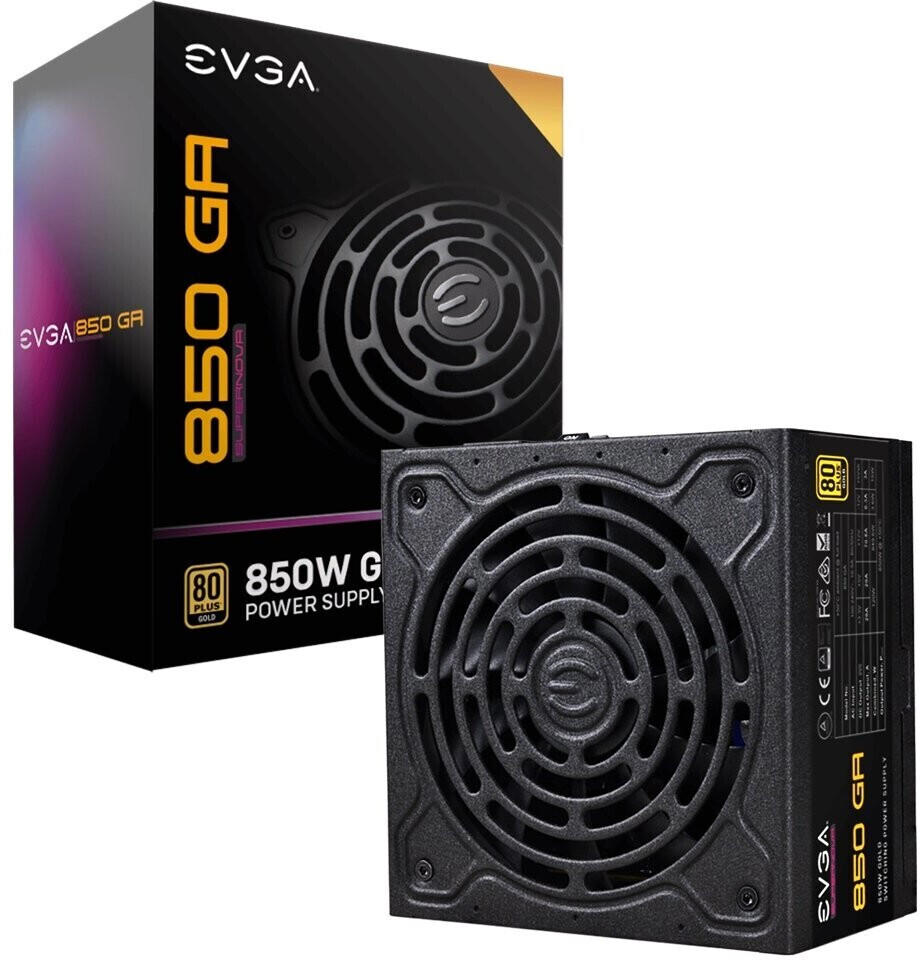
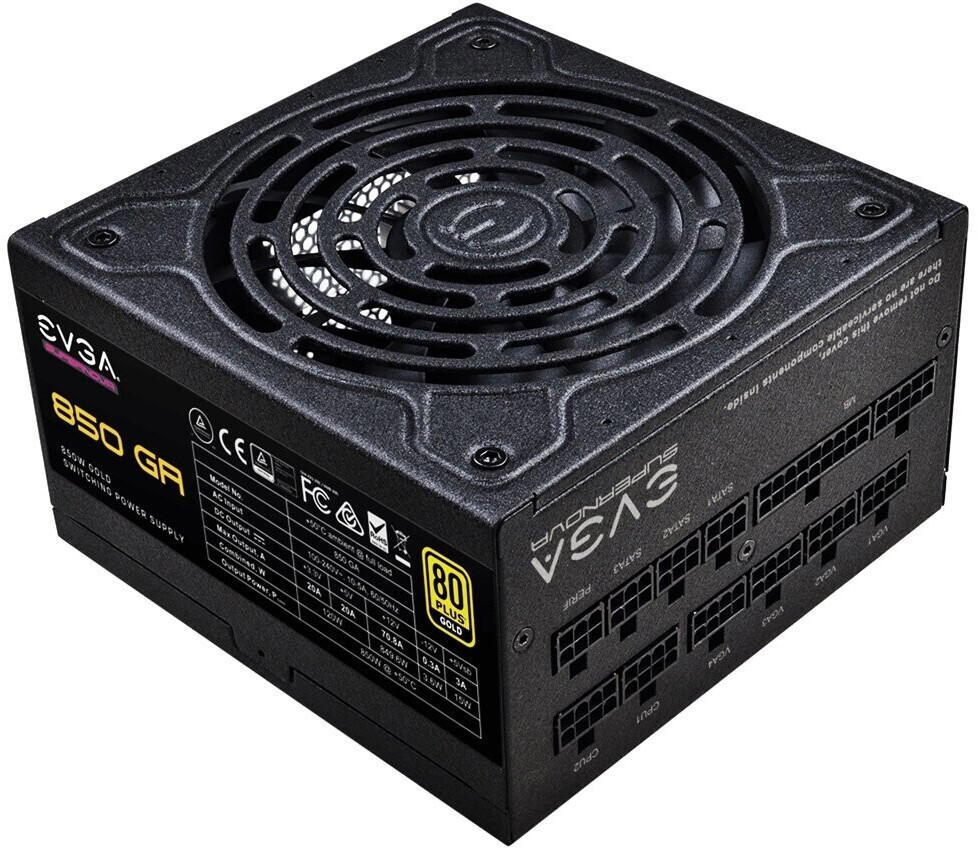
Power-on self-test (POST)
The POST feature ensures that your computer system is functioning properly by running a series of diagnostic tests upon startup. It helps detect and report any potential hardware failures and issues with the system's components. Some top-quality PSUs known for their excellent POST functionality include the Corsair RM750x, which offers comprehensive self-testing capabilities, ensuring the PSU is running optimally. Another outstanding option is the EVGA SuperNOVA 750 G5, which includes an Intelligent Auto Fan mode that self-tests on startup to assess its fan's functionality and operation. These PSUs provide peace of mind by ensuring that your computer system is reliably powered, contributing to its overall stability and longevity.


Input frequency range
The input frequency refers to the electrical frequency supplied to the PSU's input, generally measured in Hertz (Hz). It is crucial to ensure that the input frequency range of the PSU matches the electrical frequency of the power source in your location to ensure optimal performance and functionality.
For example, some PSUs have an input frequency range of 50-60Hz, allowing them to work with power sources that provide either 50Hz or 60Hz frequency. This versatility is beneficial for users who may be traveling between different countries with varying power grid frequencies. One such product that offers this feature is the Corsair CX Series CX550M PSU with an input frequency range of 47-63Hz. Another option is the EVGA SuperNOVA 650 G5 PSU, which has an input frequency range of 50-60Hz.
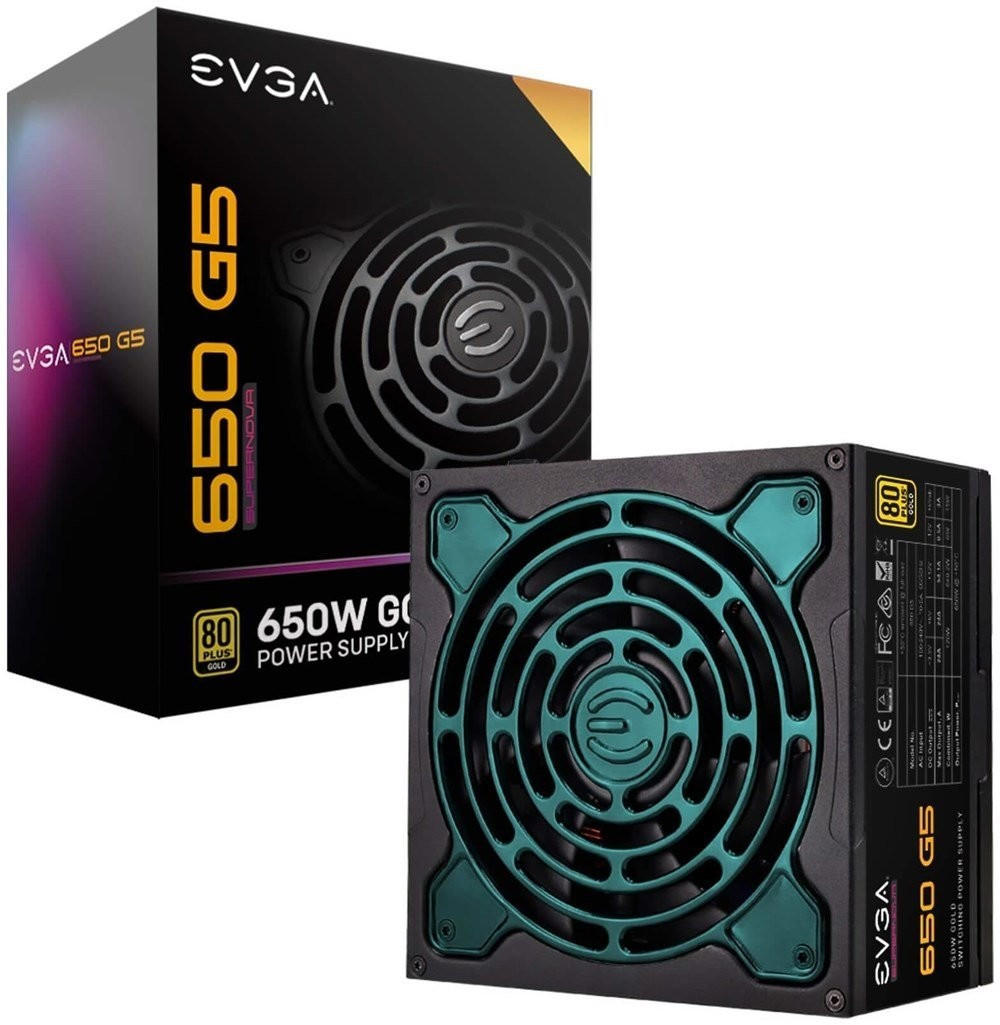
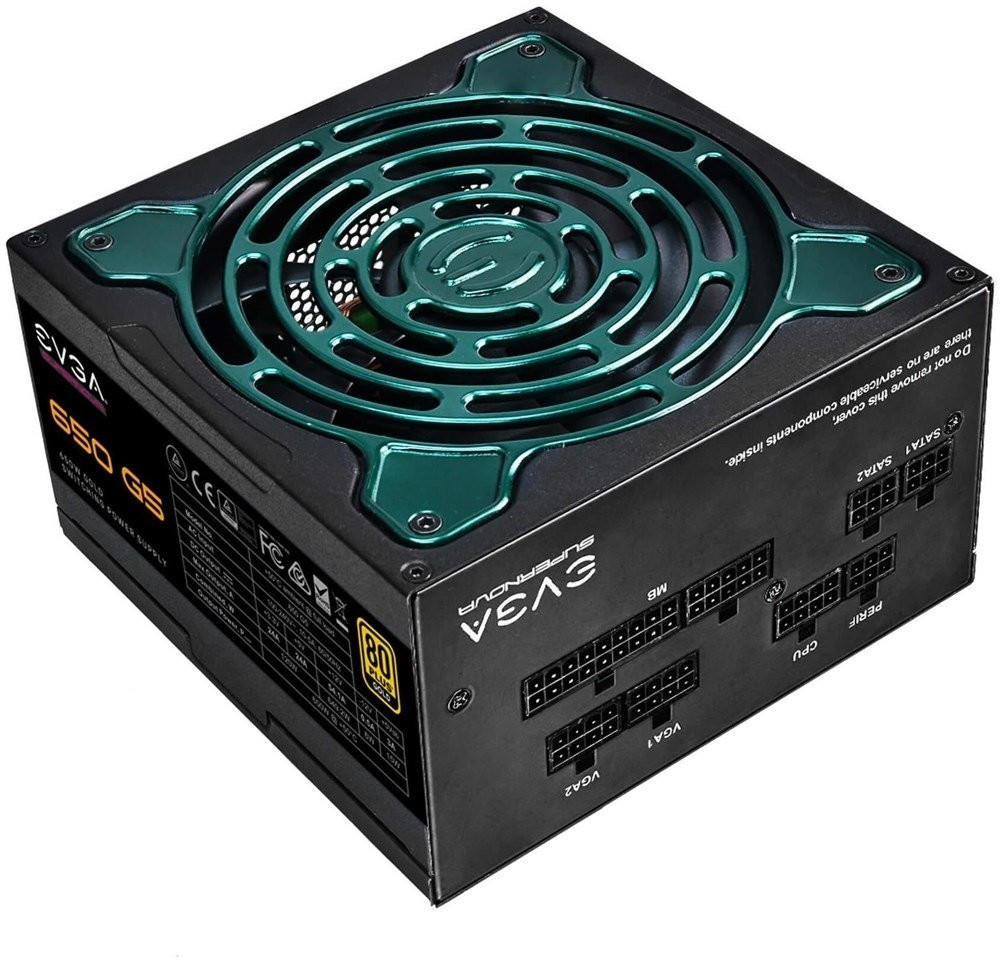
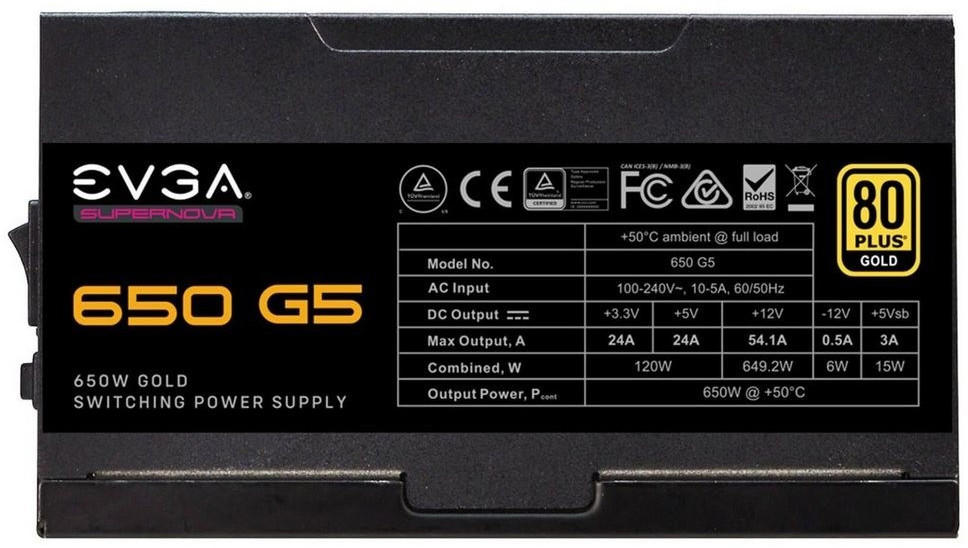
When considering power supplies based on input frequency range, it is worth noting that there are PSUs specifically designed for certain regions or countries where the power grid predominantly operates at a specific frequency. For instance, in countries with a power grid frequency of 50Hz, some PSUs are optimized for this range, offering greater efficiency and stability. The Seasonic Focus+ 750 PSU, featuring an input frequency range of 50-60Hz, is a reliable choice for locations with 50Hz power frequency. Similarly, in regions where the power grid operates at a frequency of 60Hz, PSUs like the Antec High Current Gamer Series HCG850 Gold with an input frequency range of 57-63Hz, are specifically designed to provide reliable power performance within that range.

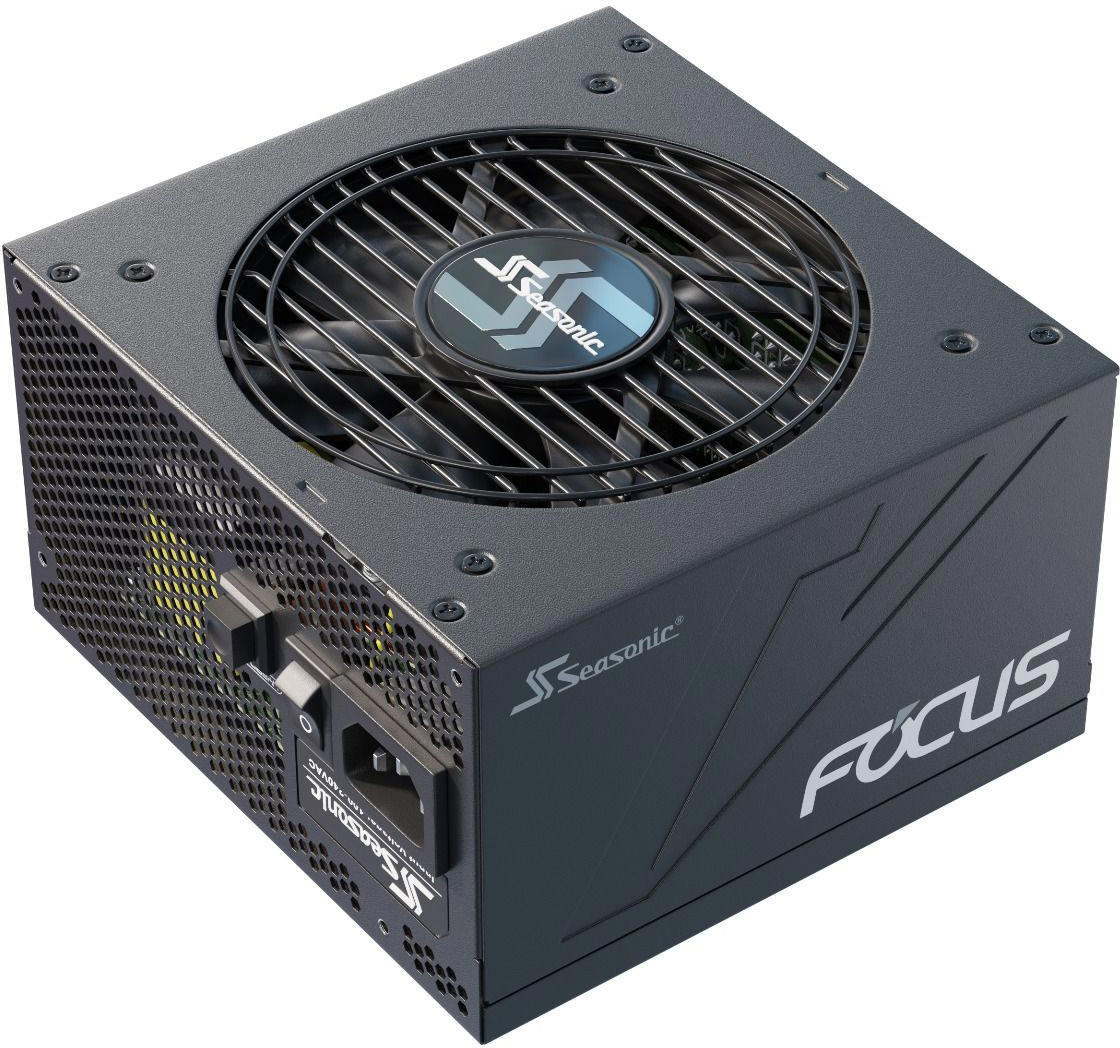
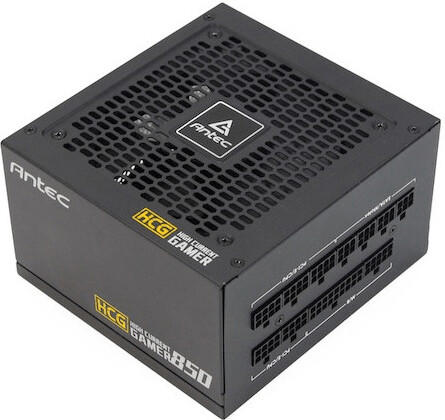
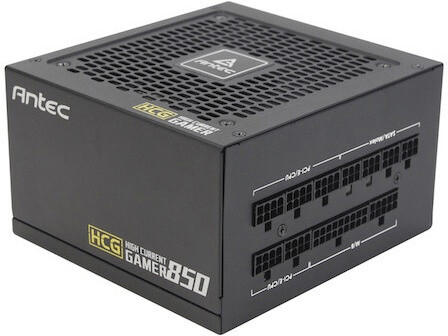
Price
PSU prices can vary significantly, depending on their quality, power output, and efficiency. In the budget segment, the EVGA 500 W1 stands out as an affordable option for entry-level systems, supplying a constant 500 watts with an 80 PLUS White certification for approximately $45. For those seeking a mid-range PSU with higher efficiency, the Seasonic S12III 650 SSR-650GB3 is a reliable choice at around $75. It provides 650 watts with an 80 PLUS Bronze certification, ensuring efficient power consumption. In the premium segment, the Corsair RM Series RM750 offers a robust 750 watts of power with an 80 PLUS Gold rating and silent cooling features for around $125. Considering your budget is crucial for making the best PSU choice for your needs.
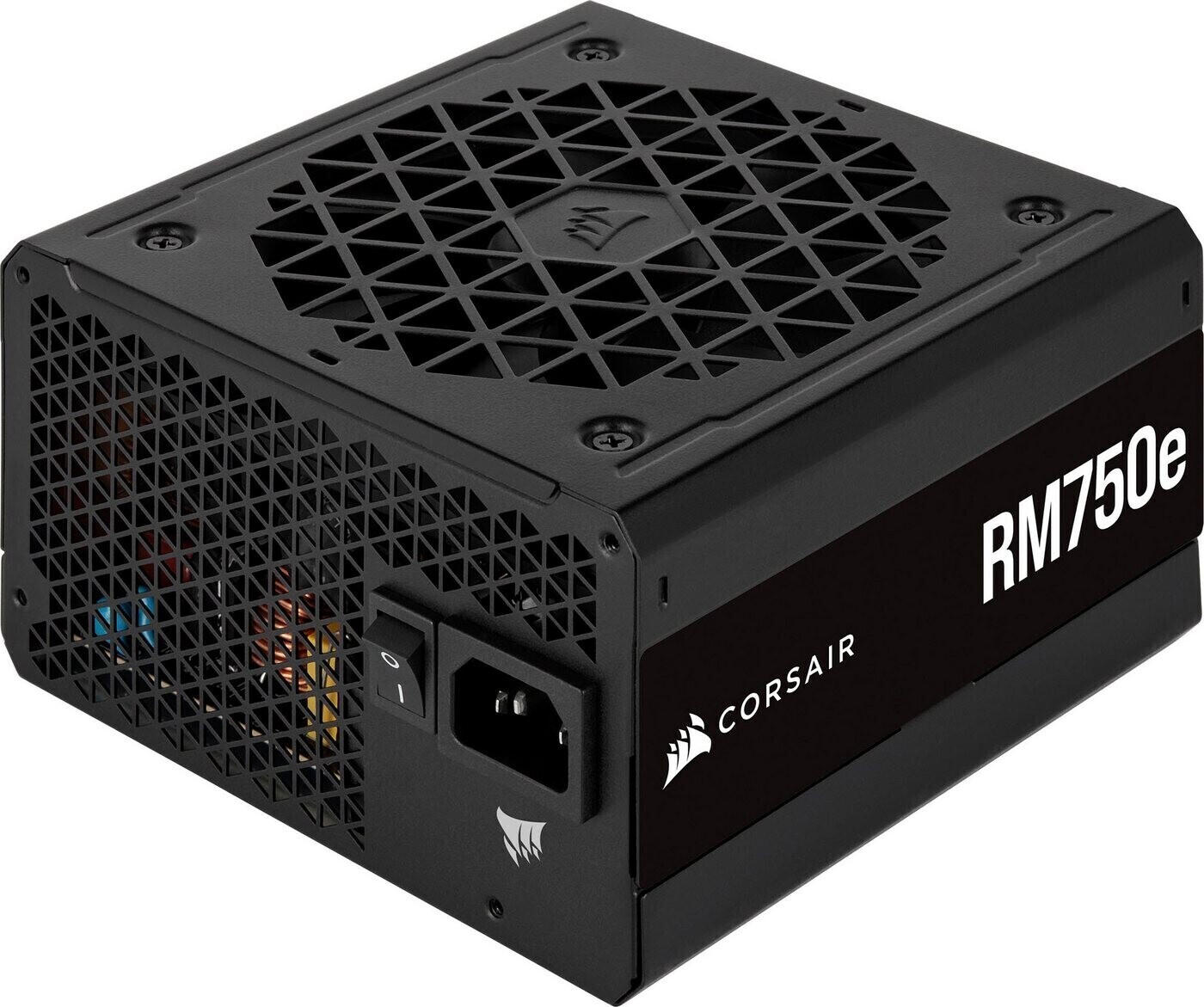
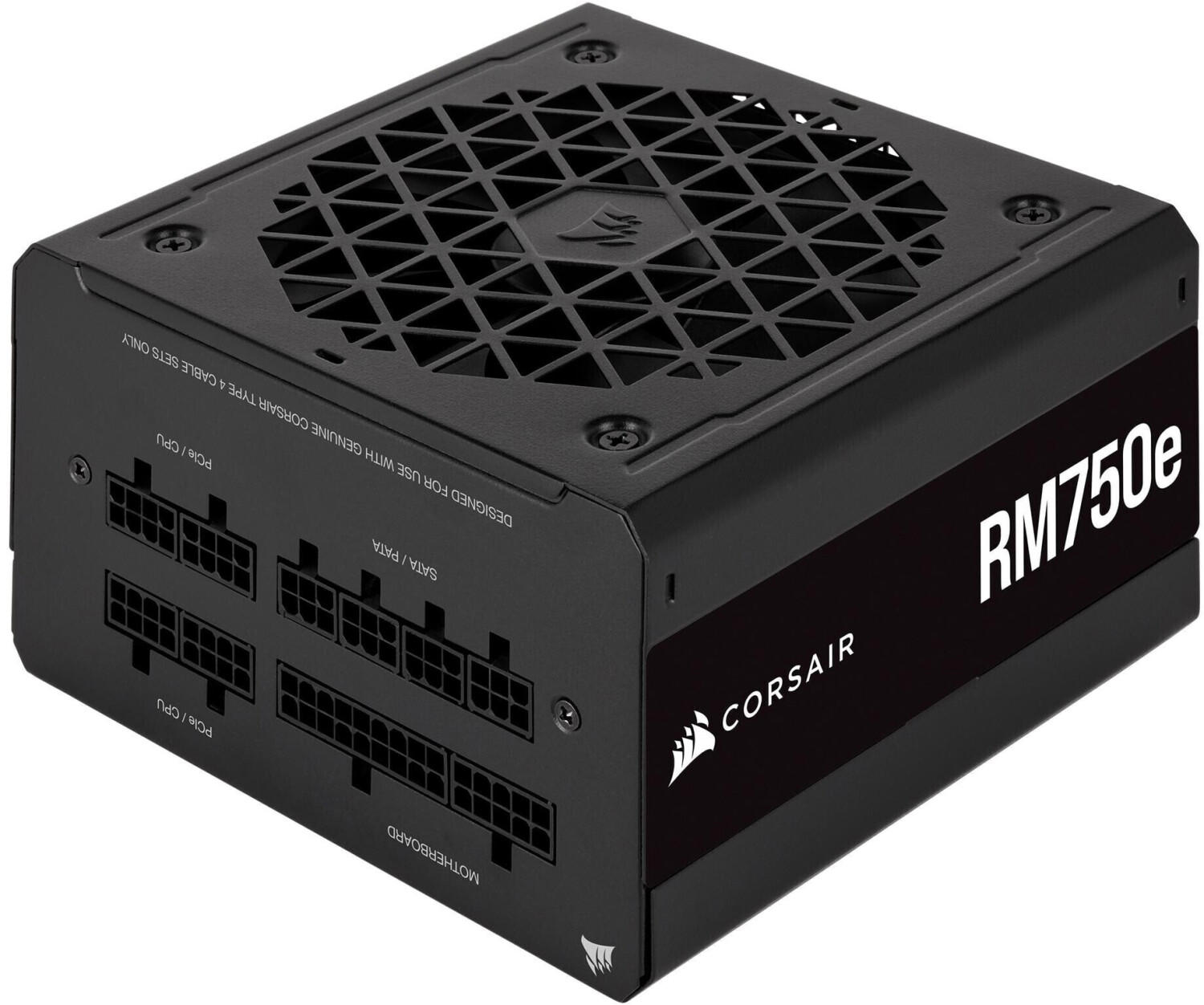
Variety of brands
Different brands come with their own set of pros and cons which can impact your overall choice. Firstly, reputable brands like Corsair, EVGA, and Seasonic have a solid reputation for manufacturing high-quality PSUs with reliable components and excellent overall performance. They often come with features like modular designs for easier cable management, efficient cooling systems, and advanced power protections.
On the other hand, there are some brands that may offer lower-cost options but might compromise on quality and reliability. For example, lesser-known brands or budget-friendly choices such as Thermaltake Smart Series, Cooler Master MasterWatt, or Apevia ATX-ARX may provide an affordable solution, but their performance and reliability may not be on par with the top-tier brands. It's important to compare specifications such as wattage, efficiency rating (80+ Bronze, Silver, Gold, etc.), and warranty length when choosing amongst the various brands available. Keep in mind that reputable brands often offer longer warranties and provide better customer support, ensuring peace of mind in case of any issues. With a range of brands to choose from, it's crucial to carefully consider the pros and cons before making your final decision.
